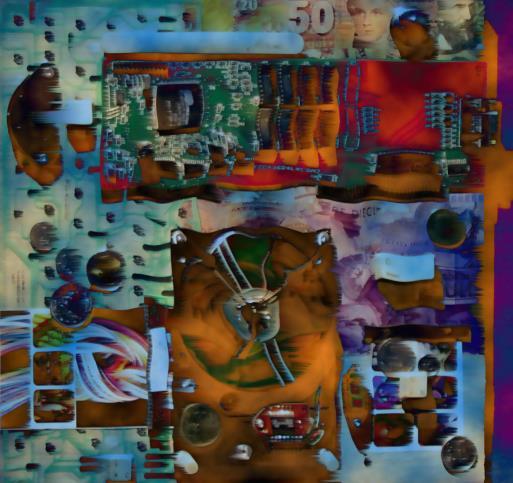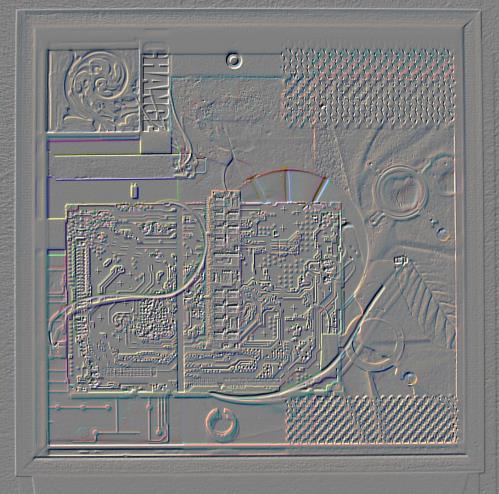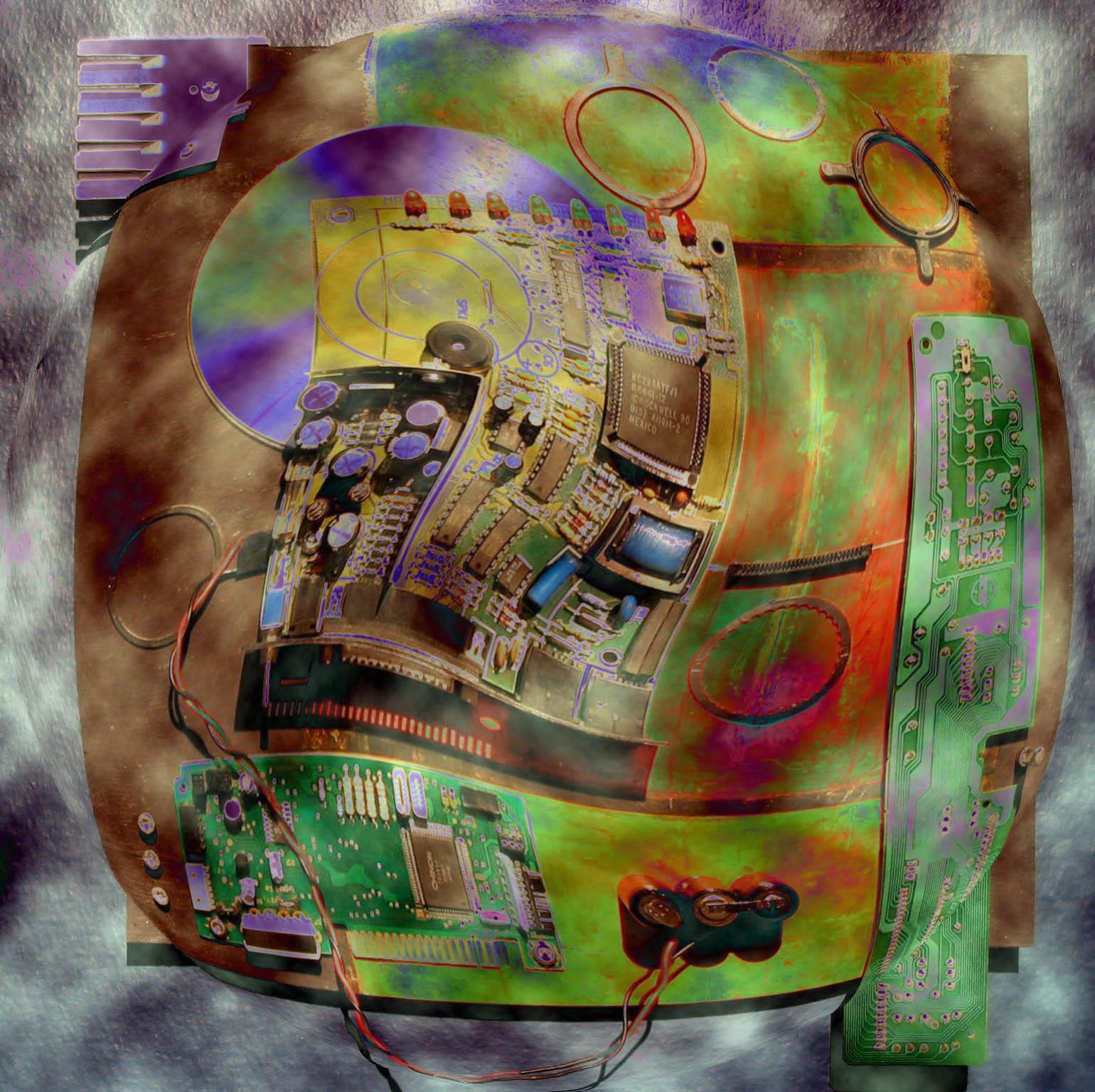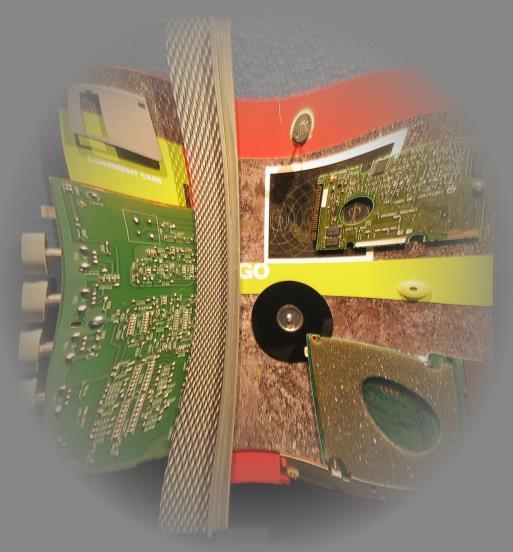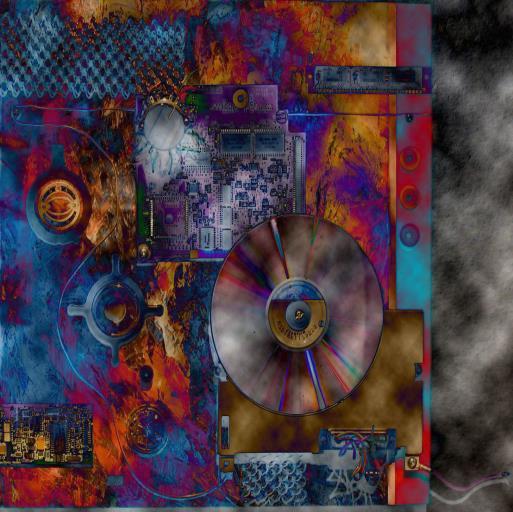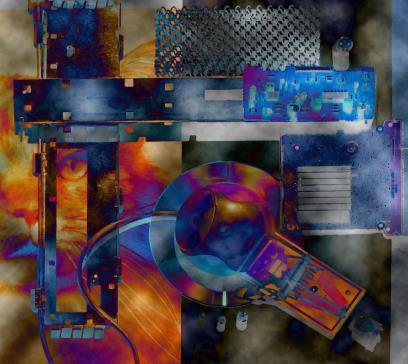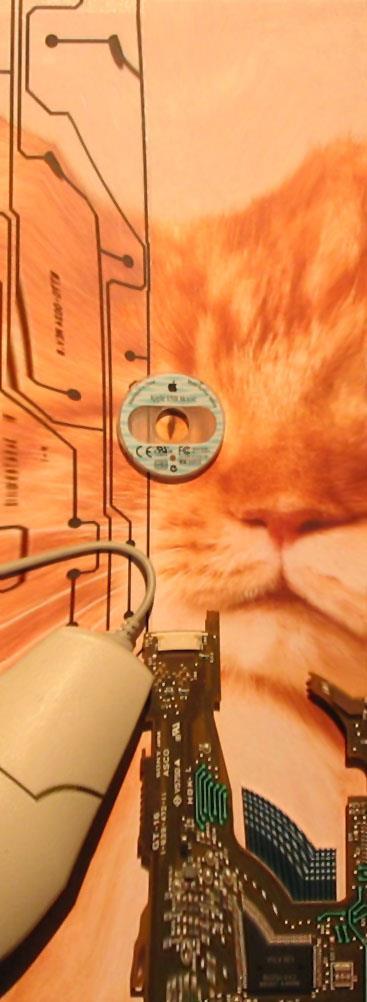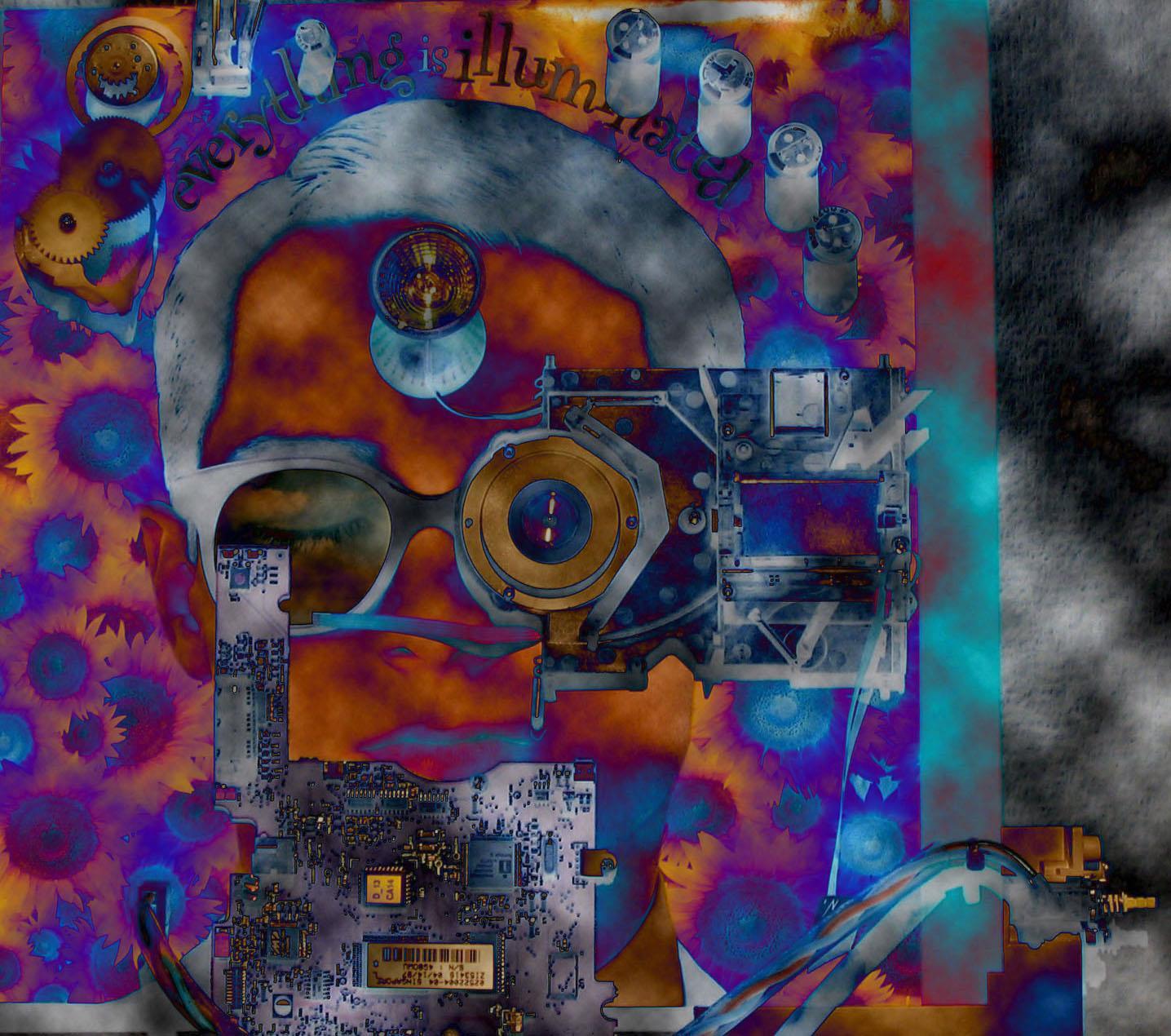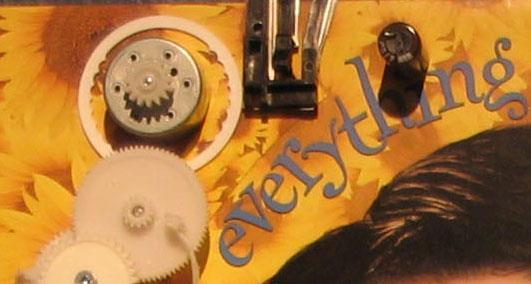BROKEN PROMISES
MIXED MEDIA: CompuART

 Ted Yudelson presents
Ted Yudelson presents


 Ted Yudelson presents
Ted Yudelson presents
Project Name: BROKEN PROMISES
Description: A commentary on computer technology: friend or foe
Media:
Mixed (CompuART): computer components, miscellaneous hardware, material samples, printed paper, acrylic paint, plaster medium, and/or FIMO on MDF board
Artist: Ted Yudelson
Contact information: Email > tyudelson@gmail.com
WEBSITE: http://brokenpromisesart.weebly.com
Note:
The attached images are photographic representations of 3-dimensional works.

In the early 1980’s, IBM gave birth to the PC (personal or home computer) and, with it, came the dream of being able to do more in less time and, as a result, have more time for leisure. Indeed, the notion of technology leading the way to the “promised land” of a four-day work week and a stress-free, leisure society turned out to be a myth – nay, a bold-faced lie!
Worse yet, it has turned out to be just the opposite. We must now produce much more work in the same or more time than we did a quarter century ago. While companies have been laying off employees in huge batches – often because technological advances have made them redundant – the rest of us are putting in more working hours than we ever did before.
Sadly, the hope of simultaneously increasing production efficiency and quality of life was not shared by the business community who evidently saw this as an opportunity to augment the bottom line and squeeze more blood out of the proverbial stone. The capitalists have won again - at the expense of the working stiff – but is society as a whole any better off? And what pray tell is the overall societal benefit of a laid-off worker who goes from a salary of, say, $1,000 for a 40-hour work week to receiving $500 on U.I. for a zerohour work week?
In the words of Peter Finch in the film Network, it’s time we opened our office windows and screamed:
“I’m mad as hell, and I’m not going to take it any more!”
We’ve been tricked, deceived. And personally, I’m pissed. Having just started my working career in the early 80’s, I was primed for a beautiful life –a more sensible balance of work and leisure. But the rug was pulled out from under me!
is my silent tantrum over The Lie.
It is the result of perhaps a childish rage to destroy the machines that have become both the saviour and the bane of our existence. It is my first attempt to address The Problem and, in so doing, begin a conversation about a search for a more balanced life, in which we can truly use technology to our benefit. At last, we must come to grips with the fact that perhaps this plight is not the fault of The Machine, but of us humans.
We have the technology.
Now what are we going to do with it?
Ted Yudelson

Blog clips, quotes & cartoons
It’s amazing what you can find on the web!

The conveniences of technology have backfired:
- Linda Duxbury, co-author of study, business professor, Carlton University, Ottawa (2002) 2001 National Work-Life Conflict Survey, Linda Duxbury and Chris Higgins: Study commissioned by Health Canada to examine the conflicting demands of Canadians’ work and family lives
The study findings suggest that the conveniences of technology have backfired and raised the demands of the job for many workers beyond what they can handle in a 9-to-5 workday. Duxbury argues that technology is a prime culprit in driving up the incidence of stress, illness, burnout, absenteeism and all other costs eating into technology’s productivity gains. The study is a wakeup call to the price Canadians are paying for bigger workloads and longer hours which, many argue, left unchecked, will result in higher health costs, lower profits and labour unrest.
Productivity paradox:
“We know that people working long hours and using technology to support it are stressed and more likely to be burned out, so the productivity paradox can be explained by the negative side of technology taking away from the positive.”
Full-time accessibility:
“People can now access their work and be accessible by work 24/7, so that’s what the expectations of the job are.”

Communication blitz:
“Just because you can reach people quicker does not mean they can perform the task quicker. What’s happened is the ability to communicate has increased tremendously, but the ability to get the job done has not gone up at the same pace.”
- Linda Duxbury, business professor, Carlton University, Ottawa (2002)
“A federal study of 31,500 working Canadians has found that technology is one of the key reasons that one in four Canadians are working more than 50 hours a week, and it accounts for nearly all the unpaid overtime worked at home.”
Chicken or egg: Which came first – the extra workload or technology?
Are we dealing with a bunch of workaholic people who can now extend their workday into the home easily because of technology, or is it technology that has made it difficult to separate work from home life and get away?
Get a Job:
“The biggest impact of technology has been to allow us to do unproductive things at a far more impressive rate. In my day job at Pacific Bell, I can write a useless memo and e-mail it to dozens of people who are too busy writing their own memos to do anything about mine.
But in general, the new technology has vastly increased my job satisfaction. I can spend hours doing stuff like upgrading my RAM and it looks like actual work.”
- Scott Adams, creator of Dilbert, Dublin , CaliforniaHuman wisdom:
“I do not feel human wisdom has much improved in the last 2,000 years.”
- Marvin Minsky, artificial intelligence pioneer
The productivity question:
If higher productivity per person results in fewer people drawing a salary, what’s the economic benefit?
And if the remaining workers are concentrated in highpressure, high-overtime jobs, what’s the intrinsic benefit?
Indeed computers have made us faster and more efficient, but at what price?
1. Work never ends: no separation between office and home
2. Travel never starts: all modes of transportation are now moving offices
3. Our children live in constant danger: contacts made on the Internet can be problematic
4. We stay indoors: computer offerings are holding us captive
5. Rumours run rampant: Information, gossip and lies can be spread unchecked
6. Journalistic standards crumble: the speed with which computer rumours travel means that journalist must move faster, with less effort being put into checking facts
7. Main Street disappears: With the ability to shop on-line, we no longer have to leave the house
8. Attention spans evaporate: Because we expect information to be transmitted instantly our patience is razor-thin.
9. Identity at risk: Computer hacks can assume your identity
10. Privacy is gone: All computer-related work and communications can be monitored
11. Pornography is almost unavoidable: One mistyped entry can yield a porno site

12. Nobody gets bored anymore: Out of boredom comes invention, creativity, conversation
From Happy Birthday, PC, by Mitch Albom, August 27th 2001
is time spent in non-compulsory activities, time spent away from cares and toils. Because leisure time is free from compulsory activities such as employment, running a business, household chores, education, day-to-day stress, eating, and sleeping it is often referred to as "free time".
The notions of leisure and leisure time are thought to have emerged in the late nineteenth century with the rise of mechanized industry. Machines made work more efficient, and the typical worker's week was cut by over twenty hours. In turn, workers increasingly engaged in non-compulsory diversions such as sporting events or theater.

From THE NORTHERN ECHO, first published Wednesday February 6th 2002.
Whatever happened to all that leisure time? Remember when, a few years ago, experts were predicting that we would have all this free time. Computers would do all our work for us and we would all be working part-time. The great problem of the future was going to be how we were going to spend all that extra time and there was much talk about educating people for leisure.
As one reader stated, “the idea of getting independence from technology is as impossible.” I’m not suggesting we can be rid of technology. That genie just won’t go back in the bottle –and we wouldn’t want it to. Still, there is something very different about the so-called information age than any previous economic and cultural sea change.
While history marvels at the new efficiency of the industrial age, the greatest by-product of marvelous machines wasn’t productivity or even economic growth, it was time. Relieved of long and hard labor, people discovered leisure. And leisure itself became an economic driver, as people engaged in a host of new activities in their now “free” time.
Through wonderful technologies, we can receive information (almost) anywhere at any time. And so we do.
We carry information receivers – mobile phones, BlackBerries, and the like – everywhere. We select vacation hotels based on availability of Wi-Fi, or at the very least an Internet kiosk.
We check e-mail incessantly. A survey by America Online published in the San Jose Mercury News found that 26% of Americans say they can’t go more than two or three days without checking e-mail. The survey also discovered that people are checking e-mail:
➢ in bed (23%),
➢ in meetings (8%),
➢ in the bathroom (4%), and even
➢ in church (1%).
Sure, information technologies have delivered tremendous efficiencies to business process. Information technologies have and are driving tremendous economic growth. I am not for one minute deriding these advances.
Rather, I’m lamenting the loss of leisure. Or, perhaps it is the misalignment of priorities that is stealing our time.
Consider:
How often have you been late for an occasion with family or friends because you “just wanted to check e-mail” before you left?
Do you regularly get short-changed on sleep because you’ve lost track of time just finishing up a little work before bedtime?
How much have you passed by for the benefit of getting more work done?
It’s not the technology, it’s how we use it – 24/7 – that is the problem. And far from being a Luddite who wants independence from technology, I’m just a bit overworked and want to enjoy a bit more of the summer.
Now, if I can just get through my in-box...
Chris Shipley is the executive producer of NetworkWorld's DEMO Conferences, Editor of DEMOletter and a technology industry analyst for nearly 20 years. Shipley, has covered the personal technology business since 1984 and is regarded as one of the top analysts covering the technology industry today. Shipley has worked as a writer and editor for variety of technology consumer magazines, including PC Week, PC Magazine, PC/Computing, and InfoWorld, US Magazine and Working Woman. She has written two books on communications and Internet technology, has won numerous awards for journalistic excellence, and was named the #1 newsletter editor by Marketing Computers for two years in a row
This column was reprinted with permission of Network World Inc. All registered trademarks are owned by IDG. More information can be found at http://www.idgef.com.
Technology – or more precisely, our obsession with it –
us of our most valuable asset: time.
Tony DiRomualdo, July 13, 2005
You make an excellent point about technology robbing us of leisure time. I could not agree more. And by the way, there is much research to support this. For example, a number of studies I've seen regarding the effects of technology-enabled flexible and mobile working show that many people use the time they gain from not having to commute to guess what? Work more!
America seems to be a work and activity-obsessed culture (and regrettably I must be counted among this group). I applaud your courage for taking a stand against work and anytime/anywhere connection and for more leisure. But as you wryly suggest at the end of your article, it is up to us as individuals to break ourselves of the work/technology addiction Good luck!
Ted Yudelson, August 15, 2006Wow, I feel like I'm reading my own words. In the last couple of years, I've been working on a mixed-media art series that addresses this very theme. The series is called Broken Promises and speaks to the Big Lie that computer technology was to allow us to do more work in less time, thus leaving more time for leisure.
The series begs the question - is computer technology getting the better of us? Perhaps it's time to rethink how and when we use these machines. Who's really in charge here???

In the 1950s, the promise of new technologies and skyrocketing productivity led many academics to predict that by the year 2000, we would have a 20-hour workweek. More vacations! More books to read! More time to spend with family and friends! Writers in the 1950s and ’60s regularly imagined such a world, speculating about the massive social adjustments that would be required to accommodate the anticipated explosion in free time.
Instead, in a cruel irony, leisure time is shrinking for many people, and work hours are expanding. Even weekends, once a refuge for many, have been invaded by work. Statistics Canada data confirm that Canadians who work full-time use the weekend to do even more work, both paid and unpaid. Between 1991 and 1999 alone, the proportion of Canadian workers regularly working on weekends jumped from 11 per cent to 18.5 per cent.
In medium and large-sized Canadian firms and organizations, 58 per cent of workers now report work/life conflict and ‘role overload’ – defined simply as
This is up sharply from 47 per cent in 1991. Half of Canadian mothers with full-time jobs and one in three fathers with full-time jobs say they are too busy to have any fun. Time use surveys also show that people are sleeping less.
“having too much to do in a given amount of time.”
Posted by JonKatz on Tue Jul 11, 2000 10:30 AM from the a-wired-up-world-where-work-never-ends dept.
New surveys suggest that ubiquitous technological tools are killing off leisure time, especially for younger workers and students, who are working longer hours, taking fewer and shorter vacations (when they do go away, they take their cells, Palms and laptops along) and say they are more stressed than any other segment of the population. Opportunistic employers aren't helping, actually encouraging employees to do personal chores on the Net - from their desks
Americans for centuries have believed that new labor-saving devices will free us from the burdens of the workplace and give us more time to ponder philosophy, goof off, explore the arts, and hang around with friends and family.
So here we are at the start of the 21st Century, enjoying one of the greatest technological boom times in human history.
Nothing could be further from the truth.
The very tools that were supposed to liberate us have bound us to our work (and schools) in ways that were inconceivable just a few years ago. But technology almost never does what we expect.
Almost all of us have less leisure time than ever. We
➢ work harder,
➢ take fewer vacations for shorter periods of time,
➢ report more stress than almost any other demographic group, and
➢ find the boundaries between work and play increasingly blurred.
According to a new study reported in the July issue of American Demographics magazine, as the distinctions between home and the workplace fade, more and more of us go online from our offices to buy the things and perform the tasks we used to do when we got home. At first, employers were wary of workers going on the Net. But they've learned to love and encourage it, since it keeps employees chained to their desks for longer hours.
In l999, the researchers report, 19 percent of the total population had Net access at work, compared with just seven percent in l996. Employers, who now expect workers to be available for longer periods, understand that they have to let them to do their chores online. At work, Net surfers go first to news, information and entertainment sites. Then they hit search engines, marketing/corporate sites, sex sites and retailing shopping sites, in that order.
But there's a huge trade off for this convenience. Inforum's l999 Survey from the MEDSTAT group, reports American Demographics, found that adults aged 35 and younger were the most stressed people in the population. Nearly seven in 10 said they were "somewhat" to "extremely" stressed, an astonishing contrast to adults over 65: 31 percent of them said they had almost no stress in their lives at all.
More than a third of adults under the age of 25 say they don't get enough sleep most or all of the time. No wonder. More than half of them report that they didn't have time to take a vacation, according to the Travel Industry Association of America. When younger people do travel, they don't take much of a break: 42 percent of travelers who go away for just a weekend are aged 18 to 34 the largest share of any single demographic group. Of course, maybe they have less disposable income or have young children they can't leave for long. But if you think about people you know in this age group, it's also obvious that they have trouble disconnecting from work, thanks mostly to technology, and they're also afraid to show employers that they're not indispensable. It may also be true that openly or not, more employers expect their workers to be around all the time.
People left their offices at a predictable time, were often completely disconnected from and out-of-touch with their jobs as they traveled to and from work, and were off-duty once they were home. That' s no longer true. Even in a competitive job market, employers expect workers to put in longer hours and to be available almost constantly via fax, cell, e-mail or other communications devices. Bosses, colleagues and family members lovers, buddies and spouses too -- expect instant responses to voice- and e-mail messages.
Employers have thus begun to pay the small price of allowing their round-the-clock workers to shop and communicate online, found the AD study.
The American Demographic report validates the suspicion that corporatist employers are taking advantage of new technologies and of workers' anxieties to demand longer hours and increased productivity - the very things new technologies were supposed to liberate people from.
Although there are no known studies relating to college students and their work hours, it seems they are also bound to their desks and dorms by environments in which faculty, friends and other members of the college community increasingly do their work online. Studies of time spent on instant messaging services would probably show staggering use. And research possibilities online are boundless.
Few of us manage to buck this trend, apart from some neo-Luddites. Half of all Americans now own a cell phone, and more than 46 per cent of pleasure travelers take their phones with them when they go away, reports the Travel Industry Association. More than 18 per cent take their pagers and 6 per cent their laptops, while 10 per cent check e-mail on vacation. Younger Americans are living in a hyperactive information culture.
According to the Bureau of Labor Statistics, 40 per cent of men worked more than 40 hours a week in l998, an increase of 5 percentage points in the last two decades. As for women, 22 per cent worked more than 40 hours a week, compared with just 14 per cent in 1979.
So it's not surprising that a l998 General Social Survey conducted by the National Opinion Research Center at the University of Chicago found that more than 40 per cent of American workers say they come home from work exhausted, up from 36 per cent in l989. Young married couples report that they work an average 26 per cent more hours each year than they did 30 years ago.
Aside from long hours, the nature of work has changed. Economist and author Richard Sennett (The Corrosion of Character: The Personal Consequences of Work in the New Capitalism) and Joanne B. Ciulla (The Working Life: The Promise and Betrayal of Modern Work), point out changes in the nature of work itself.
"Flexible" work projects, the growing number of part-time workers, and a culture that embraces and even celebrates continuous layoffs, downsizings and re-engineerings have rendered almost everyone's work life stressful and unstable. Workers work harder and longer, move more often, change their work tasks more frequently, and are nevertheless constantly subject to dismissal or its threat.
New technologies, from genetic research to the net, offer all sorts of benefits and opportunities. But when new tools make life more difficult and stressful rather than easier and more meaningful - and we are, as a society, barely conscious of it - then something has gone seriously awry, both with our expectations for technology and our understanding of how it works.
100+ years ago, the railroad and coal bosses took advantage of workers, making them work 12+ hours a day, many suffering injuries that made them unable to work. At first many were happy that at least they had a job; at least they weren't a slave in the field. But over time, they got together and organized and fought back, winning the 8 hour day and safer workplaces.
Now, decades later, after the 8 hour day has slipped away, and we are again working 12+ hours a day, with many of us destroying our wrists. And we hear many tech workers saying they are happy because at least they aren't slaving away in a coal mine (ever seen current coal miner working conditions and pay, after they organized and won?). Do we have no self-respect? All this talk about capitalist self-interest, yet in the end it's all just selfless charity for faceless corporations.
Though a pretty good article, I think the premise is somewhat flawed. Sure, the dream of technology is that it will free us from grunt work and give us more time to do other things. The way this is supposed to work is that, with the new tech, you do the same amount of work in less time.
This means you can get off work earlier and enjoy life, right? No such luck, Skippy. You (and your employer) are used to putting in so many hours. You don't think in terms of tasks to get done, you think in 8-hour blocks of time that you spend at the office. The result? You do more work in the same amount of time. Nothing changes. You make more progress and get to the next task faster than you would have before. The idea of getting more leisure time from increased productivity at work is a myth that IMHO will never be realized. There is always more to get done.
Humans get bored when all they have is leisure time.
Stop complaining, it is what you are voting for!
A capitalistic society will NEVER decrease stress, it will increase until it blows, and then it will begin again.
Only when the goal of society stops being increased profits and becomes increased standard of living, THEN the stress will decrease. Not before.

 by drenehtsral on Tuesday July 11, 2000 @05:36AM
by drenehtsral on Tuesday July 11, 2000 @05:36AM
Technology was supposed to free us from the particular set of shackles that were the affliction of the industrial age. Now that we are moving towards the post-industrial information economy and all that shit, we have a new set of shackles. People are really good at that, making up new ways to be stressed out. I think we'd get bored otherwise..
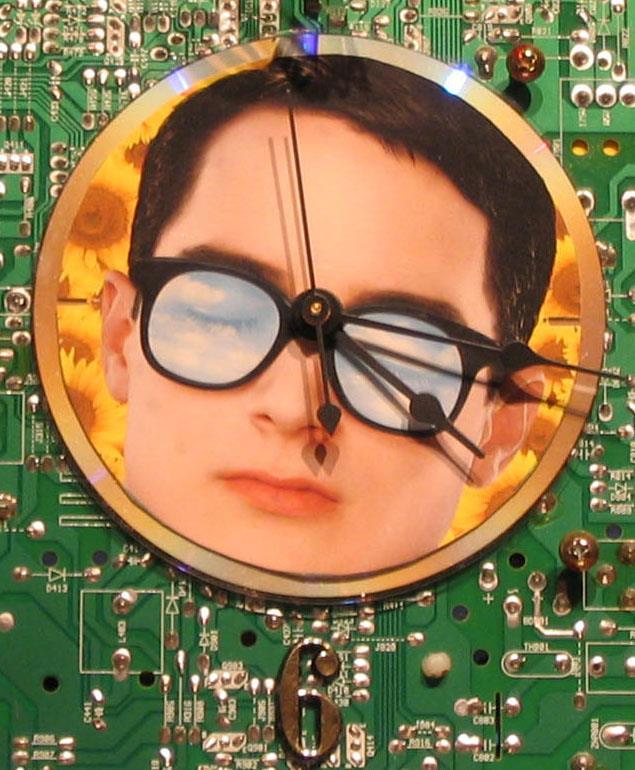
What benefits have individuals gained from the "digital revolution", in terms of leisure time and quality of life?
I've been in this industry for almost exactly two years. I had no background in it and have been relying entirely on aptitude to compete with the guys who were coding at birth. I'm now making three times the money I was making when I was busting my ass bartending, welding, or pretending to be a musician.
From my point of view, these technological shackles, have totally changed my life for the better. I have a house, a car that doesn't suck, a lawn that always needs watering, and a family. I have infinite free time compared to the past. If I choose to spend that free time connected to the electronic heroin at Battle.Net, you can hardly blame the laptop.
People may be dragging their cell-phones everywhere they go, but it's because they like looking important. How can we complain about people bringing palm-pilots on vacation? We can finally afford those vacations!
I guess I just don't see the downside...
“I'm of the mind that we create our own shackles. Life is too short to be jerked around on someone else's chain. If you want freedom, free yourself.”
~ RobertAG
Fuuuuckkk that!
I'm a programmer. I work a strict 40-hour work week. Any more than that and I'm getting paid *a lot*. No PDA. No cellphone. Not even a pager. Free time is a hell of a lot more valuable than cash. You only get to be young for a while, so you better enjoy it. Don't stress yourself over other people's problems. In the big scheme of things, the project plan really isn't all that important.
It's not built for the benefit of individuals any longer, but for the benefit of corporations. But who's forcing us to work these jobs? That's right, nobody.
We choose to. If we decide that the stress or hours are too much, then we should quit. It's all your choice. The corporations don't force us to work these hours. I'm tired of people bitching about their jobs, then doing nothing to better it. I hated my previous job but rather than complain about the hours, I found a new one.
I don't notice any lack of leisure time, I still go out, and do other things, but I also spend my fair share of time playing computer games & chatting on IRC. However, for some people who are too stupid to know better, it wouldn't surprise me. The main problem with this is people who don't know how to regulate their use of time with technology and try to be 'cool' by having their cell phone on in a movie theatre, and getting people to call them. Personally, I find this annoying more than anything. Yes, I have a laptop, and a cell phone, but I don't go around getting people to call me all the time...
...of the way society has been moving for a long time. It's not built for the benefit of individuals any longer, but for the benefit of corporations. Think about (in the US) the processes of government and economic participation, and ask yourself where the balance of power lies between individuals and corporations. Is it any surprise then that the benefits from technological advance have gone almost exclusively to the corporations rather than the individual workers themselves? I predict that unless and until some kind of revolution takes place, workers will continue to see their leisure time eroded and their freedom diminished. Until that time, it will not get any better in terms of true quality and meaning of life.
People need to wise up about this crap, and learn to use it more effectively.
time
If you decide you are going to work 11 months a year, then you can set that up. Career management. That is the key. Let people know your limits, and live with it. Yes, it may impact your success, but that is the decision you have to make. If you feel you need that extra $10K enough to sacrifice your weekends for 5 months, then do it. If family, social life, and health pursuits are more important, then you'll accept that
by Tomin8tor on Tuesday July 11, 2000 @06:50AM“The modern work world will eat your
IF YOU LET IT.
and get on with it.”
Sure, maybe we are "stressed" these days, and feel tied to jobs from which we can't escape but think about how great it is that these technologies allow us to have careers where we don't have to shovel coal 22 hours a day. I moan about my job sometimes, but if I had to work in the meat-packing industry in turn of the century Chicago, I would kill to be tied down to a tech job.
Technology is just the newest in a long line of excuses people use to explain away their own shortcomings. If you’re overstressed, underpaid, overworked etc., it’s up to you to do something about it. Turn off the pager, drive over your cellphone, improve your education, whatever you need to do to make yourself happier. Just stop blaming your employer, your computer, your cellphone, whatever because your life isn't working the way you want.
If this hunter gather lifestyle is really so easy, why do you see people in India and the like starving in metropolises when there is all this food abound outside of them? You think you just pick it off the trees? No, sorry. Food is scarce, even with modern technology, it takes farming to even approximate what you see today.
Generally speaking, people are pretty rational beings. If there is a lifestyle that requires less work and yields greater happiness, people would flock to it.
Understand this basic reality, and you might come to further appreciate modern advances
We're allowing technology to make our lives more complicated and less relaxing. I know I myself do that way too often.
However, the point is, and always has been, technology is going to have results depending on how we use it. So, we've chosen to use it to make life more stressful in many cases. Let's face it, we only have ourselves to blame if we do it to ourselves or let it happen to us.
It's not a "good" versus "bad" technology or the white-hat workers versus the black-hat evil Corporatists. Life's divisions aren't that simple.
Take that vacation time, put your foot down, don't overtax your employees, find that job that gives you a break, stop using the net to fill up every spare moment, etc.
Our worst problem is somehow the ideal that more "work" is somehow noble, admirable, a sign of superiority. So we let ourselves work harder and longer - but for what result? Doesn't seem worth it to me.
I've been watching, from time to time, a series on PBS called "1900 House" [pbs.org]. It's about a family that has volunteered to move into a house that was rebuilt to be as close as possible to a house from 100 years ago. It has all of the same technology, including a stove that barely works but must remain on 7x24 because it's the main heat source for the house. I find this show interesting because it's unbelievable how much time is spent cooking and cleaning. Virtually all of the time is spent keeping things clean, while most of the rest of the time is spent cooking!
This show is enlightening because it demonstrates how much additional time we actually do have because of technology. And what the vast majority of us do with that extra time is (drumroll please)... watch TV!
Now, that being said, I don't disagree with the article. Employers do seem to be demanding more and more of our leisure time. And I don't think some of the demands are justified. But, if you're good at what you do, you are golden. There's a technology labor shortage - a big one. As long as this exists, those who are technically capable can either:
1. Set up reasonable boundaries without fear of reprisal, by refusing to dedicate all of your time to your employer.
2. Become co-conspirators in the drainage of their time by never setting any boundary on what is or isn't reasonable.
That being said, let's all go out and demand that we only work 60-hour weeks so that we can have some time to catch up on the Simpsons!
I remember reading in an anthropology text once that LEISURE TIME IS INVERSELY PROPORTIONAL TO TECHNOLOGICAL ADVANCEMENT. THE CULTURES WITH THE HIGHEST LEVELS OF LEISURE TIME WERE HUNTER-GATHERERS AND THAT IT ALL PRETTY MUCH WENT DOWNHILL FROM THERE.
The prototypical tribe would try to kill some big game animal and, when they were finally successful, would pretty much just camp out next to the carcass for as long as it lasted. If you are talking about a woolly mammoth, it could have gone on for a while.
Where is there a reasonable compromise? I like leisure time, but I'm also fond of indoor plumbing and electricity. Technology gives us the means to work more (think electric lighting) so we do work more. Back on the farm 150 years ago, you worked awfully hard during the day when the weather was good, but after the sun went down you had 12 hours of enforced downtime; even more during the winter.
We are also to some extent victims of our own prosperity. Incomes for tech workers have risen to the point where we can think about owning homes, cars, and other goodies. Many of us make long commutes in addition to working long hours.
I guess the real question is: on balance, are we better or worse off than we would have been without the technology?
by doublem on Tuesday July 11, 2000 @06:18AM http://www.onlineconfessional.com/blog
In the days of the Romans, they used "Bread and Circuses" to keep the population stated. Today, bread is not a problem. There is more than enough food for all on Earth, and those who need to be controlled are given the bread. Those who do not are left to starve or are simply shot.
Gladiatorial matches have been replaced with WWF and sitcoms, but technology has offered new challenges to those who rule our lives.
The wealthy and powerful realized long ago that allowing technology to develop and reach the masses would allow them to do the same work in less time, so they filled our minds with visions of a "Jetsons" future with flying cars and 3 day work weeks.
In reality, they were pushing us harder. The changes were small and hard to notice. The principle was simple. If you put frog in boiling water, it leaps out, but if you put it in cool water and slowly turn up the heat, it remains until cooked.
Work using technology IS more efficient. We accomplish 40% more than our parents did in the same time, but we are asked to do 60% more than they did and are thus destroyed and controlled.
Here endeth the lesson.
THIS IS HOW THEY HAVE KEPT US UNDER CONTROL. INSTEAD OF ALLOWING US TO FINISH OUR WORK IN LESS TIME AND THUS HAVE THE LEISURE TO IMPROVE OUR MINDS AND CHALLENGE THEIR POWER, THEY HAVE INCREASED OUR WORK AND DEMANDED THAT EVERYONE ACCOMPLISH MORE.
At the beginning of the last century, the tractor and the assembly line revolutionized the American economy. The eight-hour workday and the forty-hour week soon prevailed as a natural consequence of these innovations.
Modern life remains a headlong rush into long commutes, two-income families, late nights at work, and exhausting recreation.
How could this be?
What is it about our collective personality that drives us over this cliff of endless rat race?
The Four-hour Day Foundation exists to assemble a particular coalition of people prepared to question the fundamental assumptions of how we labor and how we distribute our immense wealth. Two percent of Americans now grow all of our food and then some. Another thirty million or so do all the mining, manufacturing, and construction. If this minority can produce our modern cornucopia, then the four-hour day is within easy reach. If we can rearrange world politics so as to honestly collaborate with other nations, anything is possible
The 4-hour day … a time whose idea has come.
The computer and other minor miracles have since opened glorious opportunities for a further reduction of our drudgery, yet nothing of the kind has happened.
We are what we do. And we do it more often now than we did 50 years ago. We do it more often even though it takes us half the time and energy to produce things as it did then. We do it even THAT we recognize the toll it takes on health, family, sanity.
Despite a supercharged economy and its formerly middle-class millionaires, we still do it, ignorant of the predictions of futurists and technological utopians who once foresaw such a period of prosperity as entrée to a "leisure society" in which work would become secondary to the pursuit of filling our ample free time.
That dreamy scenario bit the dust as bytes sped up life (and didn't make it easier, as technophiles predicted) and the marketplace overflowed with stuff we didn't really need but bought anyway. Labor experts say the average U.S. worker put in 80 more hours in 1999 than in 1979. The problem is even more pronounced for married working couples with kids, whose collectively put in seven more weeks a year in 1999 than they did 10 years earlier.
Like manageable work hours, the visionaries and agitators behind our leisurely future disappeared too. A few academics (former Labor Secretary Robert Reich, economist/alarmist Jeremy Rifkin) have taken weak stabs at the ballooning workday, but they're drowned out by go-go work-is-life management theorists. The labor movement is more focused on making sure those longer hours are put in by union workers. The traditional political benefactor of working folks, the Democratic Party . . . well, enough said. And nary an optimistic futurist can be found who will say, "You've worked hard enough and now you're super-productive. It'll soon be time for your reward: A shorter workweek!"
So, who will step into this void and lead us to a shorter day of toil? Who will deign to rescue us from our frenzied workweek and the fraying lives it can cause?
A state-employed machinist from Towson, that's who.
Gabe Sinclair believes he's the man who can lead us back to labor Eden--or halfway back, at least. With The Four-Hour Day, a book he self-published in December, and his foundation of the same name, he aims to kick-start the moribund American trend of making work hours fit the productivity rate rather than the whims of profit-addicted managers or workaholics with a fetish for consumer goods and a matching stomach for credit-card debt.
Part of publishing the book is the notion that we should have a measure of our prosperity [besides wealth], which would be working less. Right now, there is no measure."
But to get to his idea of a shorter workday, we have to take a trip into the hardly workaday mind of Gabe Sinclair.
The idea for the book might have been formed back in Sinclair's 1960s teenhood in suburban Northern Virginia, when he read "crappy utopian novels" such as behavioral psychologist B.F. Skinner's Walden Two and Edward Bellamy's Looking Backward. "Skinner mentioned the prospect of a four-hour workday. It kind of stuck with me," Sinclair says.
"People just accept 30 years of eight-hour days with no question at all," the 51-yearold Sinclair says. "I heard on the radio the other day that our productivity had gone up 4 percent. I hear that and think, Why
"I have seen the future, and it works."
~Lincoln Steffens
"I have seen the future, and it works less than we do."
~Gabe Sinclair
"[S]o long as there is one man who seeks employment and cannot obtain it, the hours of work are too long."
~American Federation of Labor President Samuel Gompers, 1887
As New Age-y as Sinclair's ideas may seem, they are part of a long tradition. In the United States, progressive movements and the enterprising politicians backed by them were fighting for shorter workdays as far back as the 1830s, when a six-day work week and 12hour days were common.
Mid-19th-century supporters of a reduced workday offered a number of rationales. Artisans and mechanics in Baltimore, Boston, and Philadelphia who pushed for a 10-hour day cited their own perfectibility as healthy, educable citizens as one reason. Employers predictably hated the idea, saying shorter days would lead to "idleness and debauchery." Nevertheless, by 1840 those workers had won a two-hour daily reduction. President Martin Van Buren bought into the idea and issued an executive order establishing a 10-hour day for people working on federal projects. But such victories were few; the 12-hour day prevailed throughout most of the country until after the Civil War.
In 1866, a group of unionists held a convention in Baltimore where 77 delegates from around the country formed what would later be called the National Labor Union. They backed an eight-hour day, which they said would raise the social and economic status of workers. Some strikes over the next few decades garnered public support for the idea, although there were setbacks such as the Haymarket riot of 1886 in Chicago, during which one policeman was killed (and after which four labor organizers were hanged). Toward the end of the century, labor leaders such as American Federation of Labor President Samuel Gompers began to tap into the concept of full employment, arguing that the unemployed could take up the slack hours from workers who toiled fewer of them. (Congress of Industrial Organizations President Walter Reuther took up the baton in 1961, calling for shorter hours to guarantee jobs for every able-bodied American. Jeremy Rifkin, in 1995's The End of Work, heralded the idea, citing the likelihood that most jobs would be taken by machines.) The high-water mark of the movement came with the passage of the Fair Labor Standards Act of 1938, which institutionalized the eight-hour daily shift, but few have pushed for going beyond that,
And that has remained the standard, with a bit of backsliding in recent years. In 1969, the average working American toiled 40 hours a week. Over the next 20 years, that rose another three-plus hours the equivalent of an extra four weeks at the office or assembly line over the course of a year. Things may have improved in some sectors of the flush 1990s economy: Numbers from January compiled by the federal Bureau of Labor Statistics show that goods-producing workers in private industry were working 40.4 hours per week.
But few have pushed to go below 40. The AFL advanced a proposal for a 30-hour workweek in 1937 to combat a Depression-era unemployment rate that would go as high as 25 percent. Two decades later, AFL-CIO President George Meany talked of reducing the week to 35 hours, to no avail. As Harvard economics professor Juliet B. Schor noted in her 1991 book The Overworked American, leaps in worker productivity did little to help workers gain free time, although incomes in many industries sharply increased. Given the doubling in productivity from 1948 to 1991, she wrote, "every worker in the United States could now be taking every other year off from work--with pay. . . . But between 1948 and the present we did not use any of the productivity dividend to reduce hours."
Like Gompers, Reuther, and, later, Rifkin, Schor thought this a travesty given the nation's relatively high unemployment rate at the time. The End of Work, Rifkin's 1995 death knell for labor, added a computer-age twist to the argument, warning that industry would have to restructure the workweek to make room for laborers who were displaced by advancing technology. But both Rifkin and Schor missed the boat, at least for now: With the official unemployment rate hovering around 4 percent, making room for those without work has more or less become a moot point. And in what must seem a huge blow to labor organizers, many workers seem to want to spend long hours on the job, either out of fear of losing their jobs or because they enjoy it, say Reich and others.
These days, the notion of shortening the workweek registers barely a blip on organized labor's radar. Ernest Grecco, president of the Baltimore Metropolitan Council of AFL-CIO Unions, says some unions have negotiated for fewer hours, "but there's no real effort to lower hours across the board. The labor movement has advocated for flex time, longer vacations, and allowing more time for employees to spend with their families. [Mandating fewer workday hours] is not one of our priorities."
~Given the zeitgeist, Sinclair knows it'll take a little time perhaps millennia to make the four-hour day happen. Leaning back in a chair in his daughter's room, decorated with fish painted along the tops of the walls, he can smile about that. Sure, cutting everyone's workday back is a great idea, he says, one overworked folks everywhere who are struggling to balance leisure, family, and jobs should think about. But people aren't ready to give up their creature comforts, the monkeys on their backs. In Sinclair's world, with its free distribution system, some might worry that others are hoarding all the goodies. The Gandhi-style non-violence that underpins his vision can't be taught in a generation. And there are those workaholics to deal with. "If I told a lot of people they could work a four-hour day, I'd scare them," he says. "For a lot of them, work is the only social life they have. They wouldn't know what to do with four extra hours."
These things take time. There are only so many hours in a day.
Sinclair's willing to admit he's not going to sweep the country by storm. He's determined to lay the foundation one hand-carved stone at a time.
"I will be extremely happy if one in 10,000 Americans responds to this," he says, outlining his outreach plan. "That would be 27,000 total. Can you imagine what we could do with 27,000 committed, like-minded people?" He's convinced these like-minded people will hold their first four-hour-day convention in a few years. If any of them--especially one who is an "unscrupulous marketing genius" want to appropriate his ideas as their own, fine. He didn't copyright the book--he doesn't even charge an official cover price, asking instead for a $15 tax-deductible gift to his foundation so people would feel free to run with the idea.
"The United States is not ready for the four-hour day."
Gabe Sinclair
Not that he won't stump on his own. He'll still meet with women's-movement leaders, he says, because "women are a lot less psychotic about work than men are." He has high hopes for a partnership with the Green Party. He wants to see what labor leaders have to say. He'll keep his Web site
(http://www.fourhourday.org/) fresh, and he's still sending opinion articles to progressive publications, now with notes that read, "I reject your rejection." He'll continue to hone his guitar chops for gigs at coffeehouses and bookstores that haven't been booked yet. He's just a man with an idea, he says, one he feels compelled to share. "All I want to say with the book is that the four-hour day is thinkable," he says.
He'll even make an example of himself, putting his security on the line in service of the cause, Sinclair says. He'll gleefully and unilaterally cut his eight-hour shift at the machine shop in half. But not just yet.

"Maybe when I get my last two kids through college," Sinclair says, looking a little sheepish. And there's really no reason to hurry. Rome, like social movements, wasn't built in one workday.
Other relevant books: Your Money or Your Life by Joe Dominguez and Vicki Robin. It's a provocative, thought-provoking book on work, life, money ... too much work, not enough time, not feeling fulfilled at work, what is enough, doing things that are worthwhile, etc ...
Time is a valuable resource, therefore it is better to do things as quickly as possible.
“
Time is money” is a much easier way to explain the concept of Opportunity cost because time is money!

It means time is a valuable resource (because our time in this world is finite), so it’s better to do things as quickly as possible.
Alternatively, spend time and effort on things that get the results we are looking for.
The phrase is usually credited to Benjamin Franklin, who used it in an essay (Advice to a Young Tradesman, 1748). The actual phrase was recorded in 1719 in the magazine The Free-Thinker
Productivity - the amount of output delivered per hour of work in the economy - is often viewed as the engine of progress in modern capitalist economies. Output is everything. Time is money.

The quest for increased productivity occupies reams of academic literature and haunts the waking hours of C.E.O.s and finance ministers.
- Tim Jackson



Time is money, but money is better.
There is only one satisfying way to boot a computer.
~ J.H. Goldfuss

Home computers are being called upon to perform many new functions, including the consumption of homework formerly eaten by the dog.
~
Author Unknown
The problem with troubleshooting is that trouble shoots back.
~
Author Unknown
Never let a computer know you're in a hurry.
~
Author Unknown
Computers have lots of memory but no imagination.
Author Unknown
~
If computers get too powerful, we can organize them into committees. That'll~ Andy Rooney
Information technology and business are becoming inextricably interwoven. I don't think anybody can talk meaningfully about one without the talking about the other.
~ Bill GatesThe real danger is not that computers will begin to think like men, but that men will begin to think like computers.
~ Sidney J. HarrisComputers make it easier to do a lot of things, but most of the things they make it easier to do don't need to be done.

No one but the creator understands their internal logic.
The native language they use to communicate with other computers is incomprehensible to everyone else.
The message "Bad command or file name" is about as informative as, "If you don't know why I'm mad at you, then I'm certainly not going to tell you."
Even the smallest mistakes are stored in long term memory for later retrieval.

As soon as you make a commitment to one, you find yourself spending half your paycheck on accessories for it.
~ Author UnknownAs soon as you commit to one, you realize that if you had waited a little longer, you could have obtained a better model
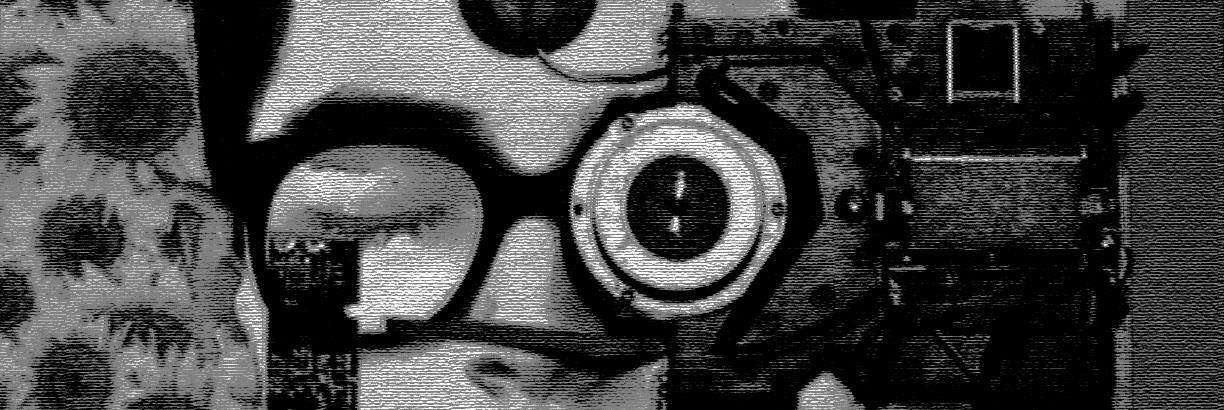
In order to get their attention, you have to turn them on. Big power surges knock them out for the rest of the day.
~ Author Unknown

“I know there's a proverb which that says 'To err is human,' but a human error is nothing to what a computer can do if it tries.”
~ Agatha Christie, Hallowe'en Party

“Our first computers were born not out of greed or ego, but in the revolutionary spirit of helping common people rise above the most powerful institutions.”
~ Steve Wozniak
"If it keeps up, man will atrophy all his limbs but the push-button finger. "
~ Max Frisch
Note:
The images shown are photographic representations of 3-dimensional works.






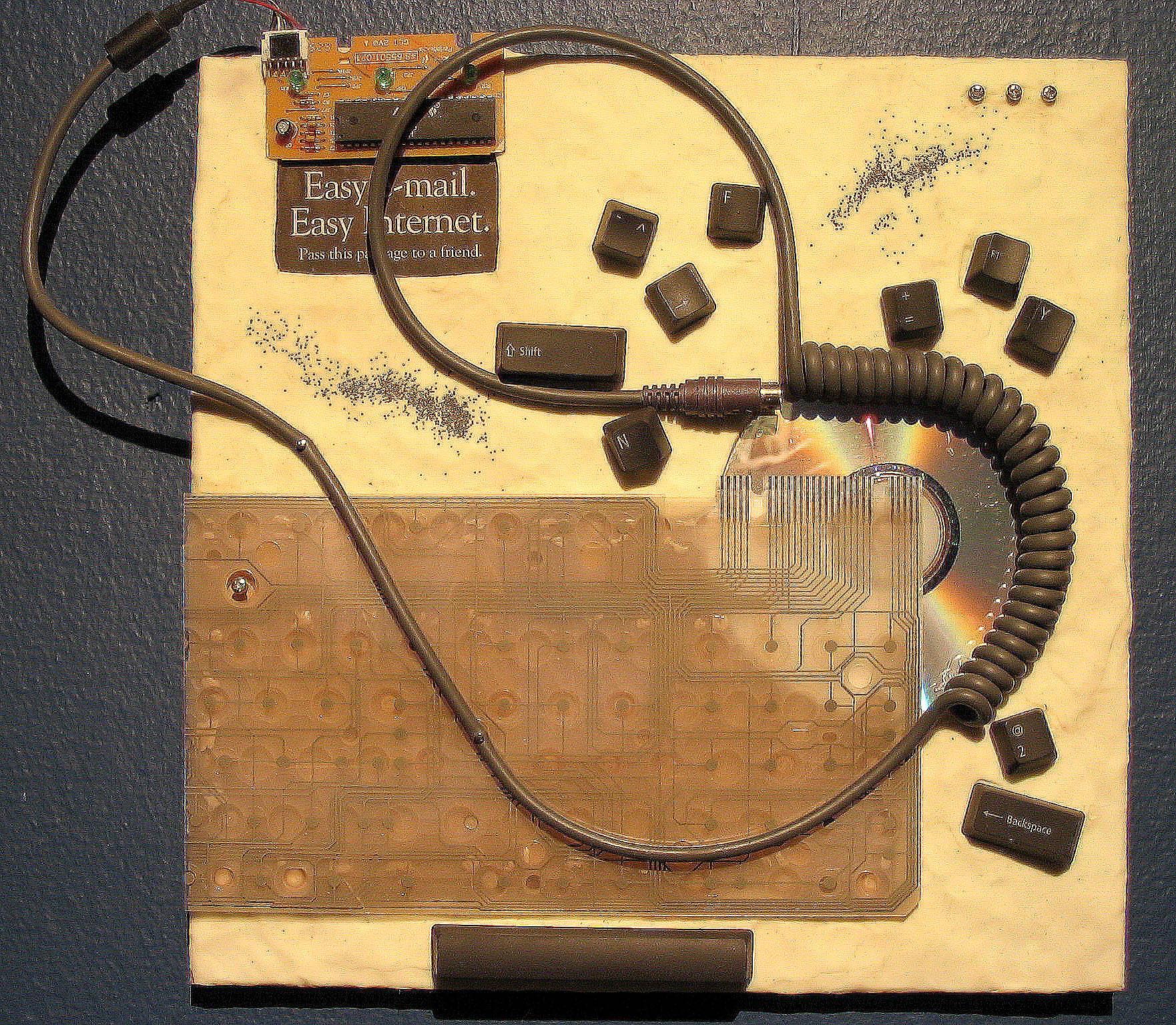



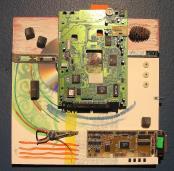


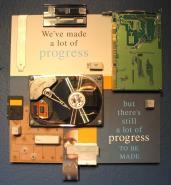



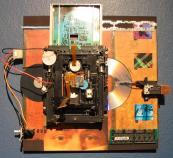
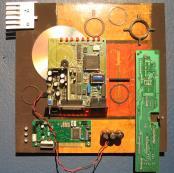
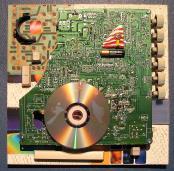



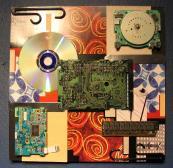




NOTE:

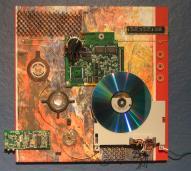









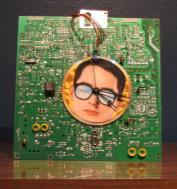

Cyborg 1


DIMENSIONS (LxHxD) PRICE
14” x 14” x 4”
FRAMED: 17½¨ x 17½¨ x 4″
BP-35 Cyborg 2 12” x 12” x 1¾”
BP-36
Massive Change 14¾” x 18¼” x 2¾”
BP-37

Clock 4

10” x 13¾” x 4” (table mount)
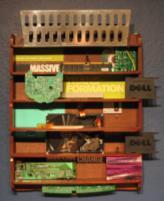
BP-38
The Technology Trap

12⅝” x 14” x 2”
FRAMED: 16¾¨ x 16¾¨ x 2¼″
BP-39
Cat & Mouse

15” x 12¼” x 2⅛”
FRAMED: 16¾¨ x 16¾¨ x 2¼″
BP-40





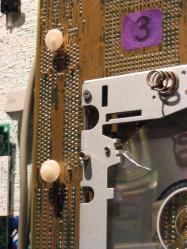




Computers are magnificent tools for the realization of our dreams, but no machine can replace the human spark of spirit, compassion, love, and understanding.
~ Louis Gerstner, CEO, IBM
Note:
The images shown are photographic representations of 3-dimensional works.
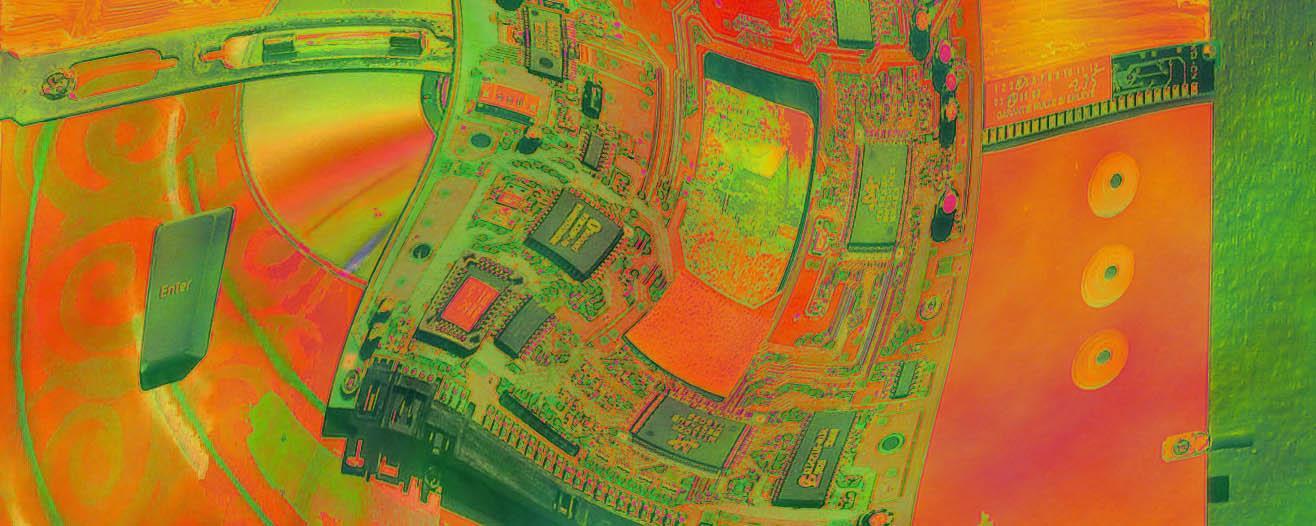

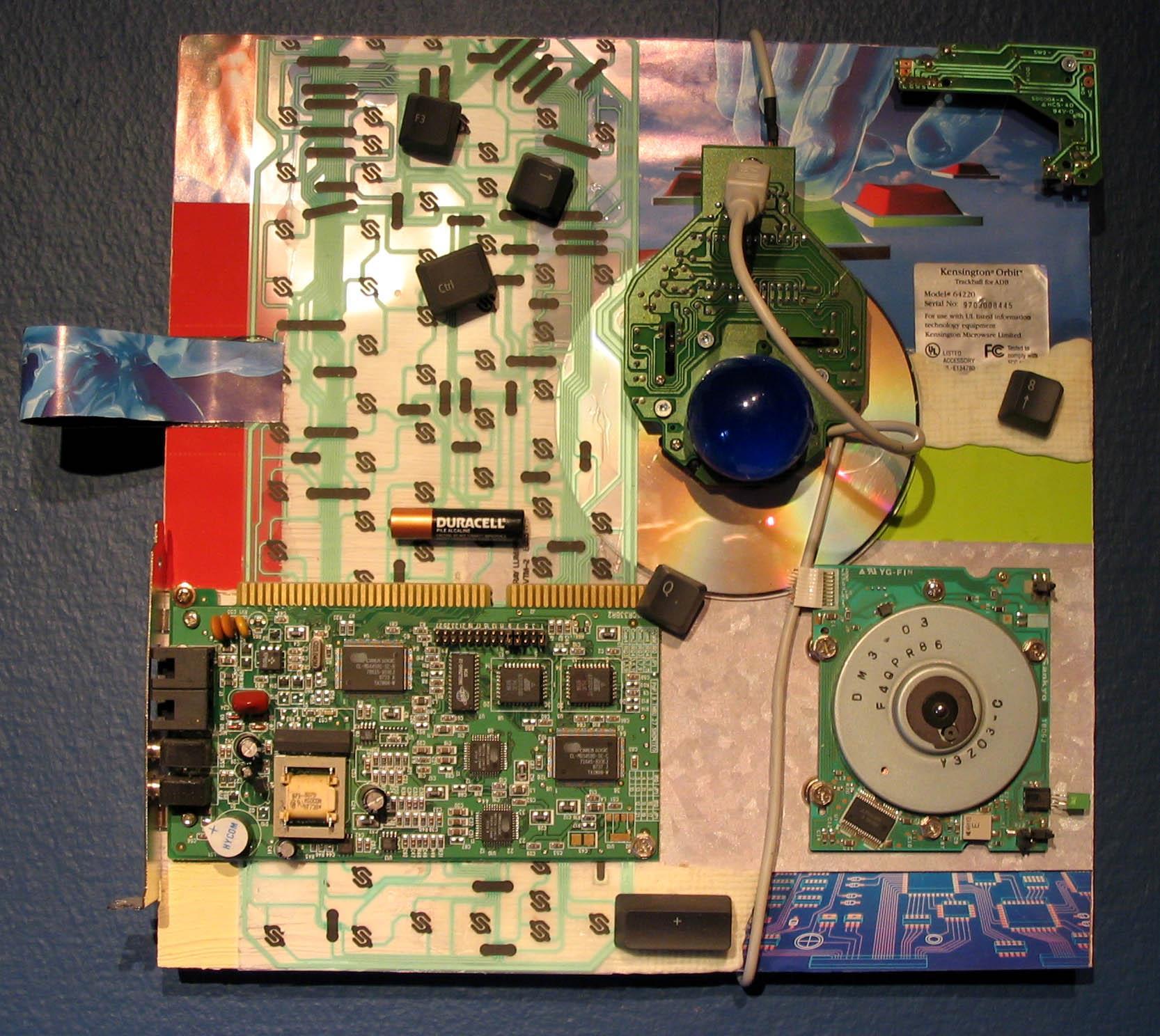
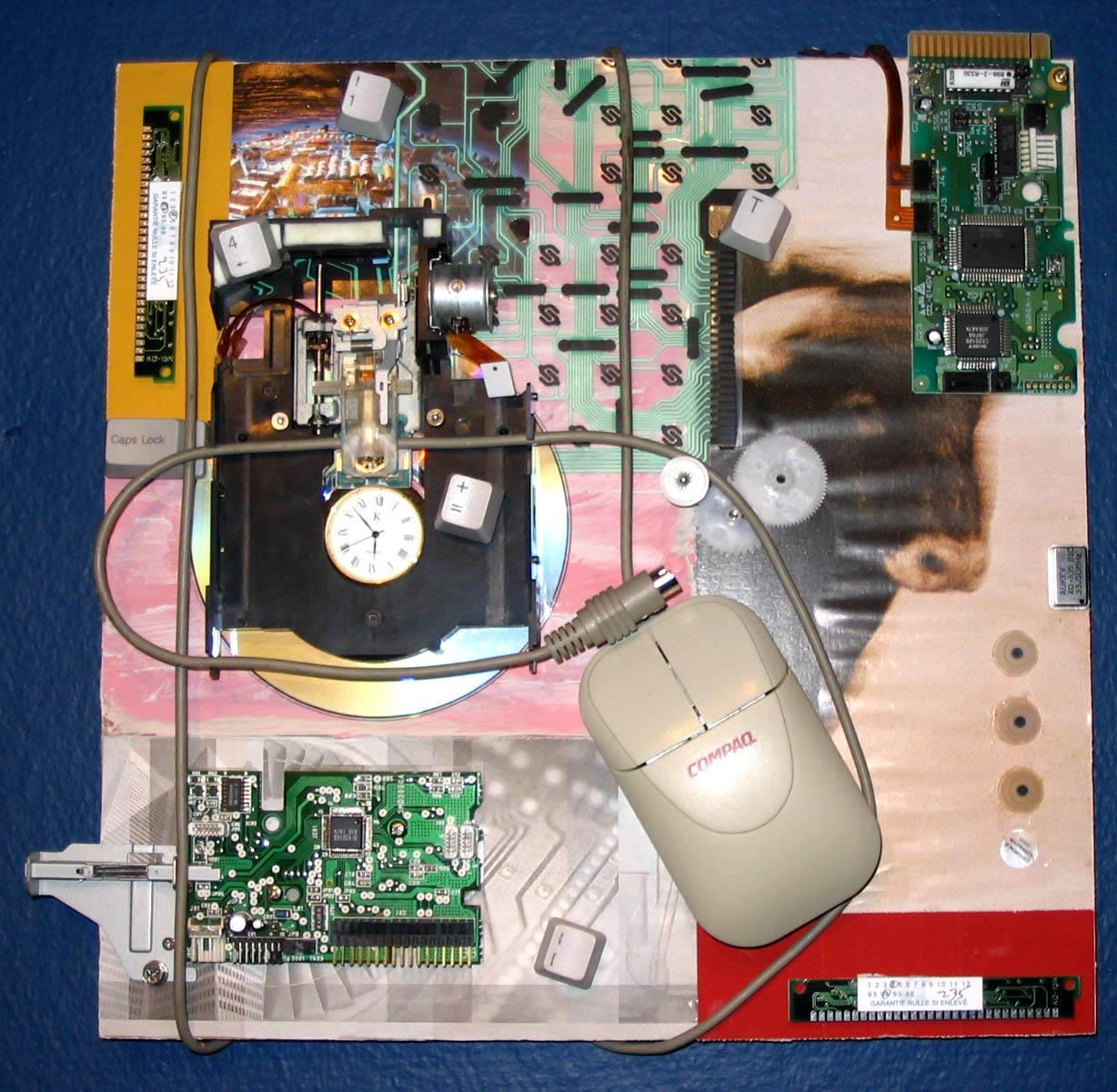
Mixed media

BP-05 Time is Money I
Mixed media
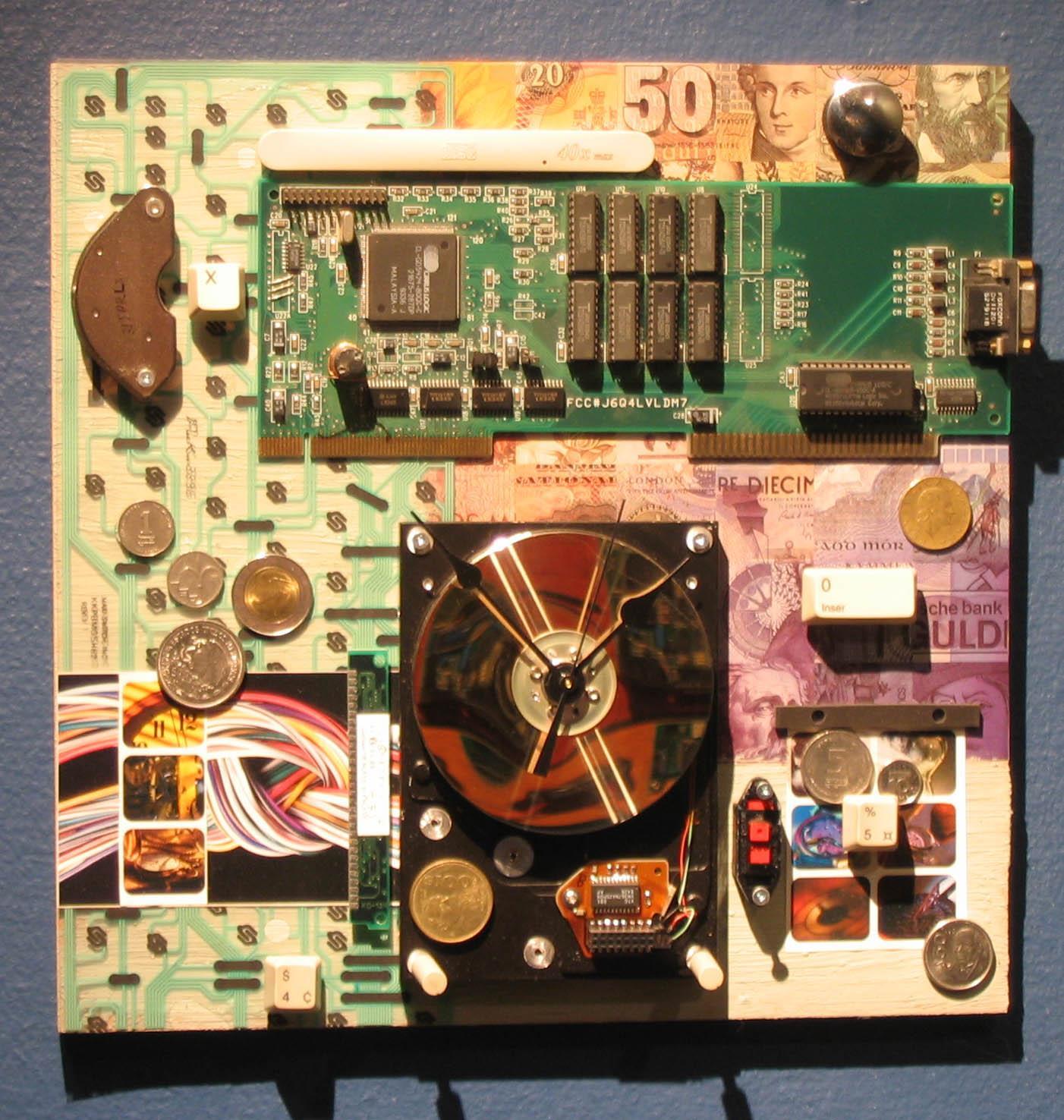
12¼” x 12” x 2¼”
FRAMED: 14¾” x 14¾” x 2¾”
BP-06 Time is Money II

Mixed media
16” x 13½” x 1½”
Can be freestanding or wall-hung
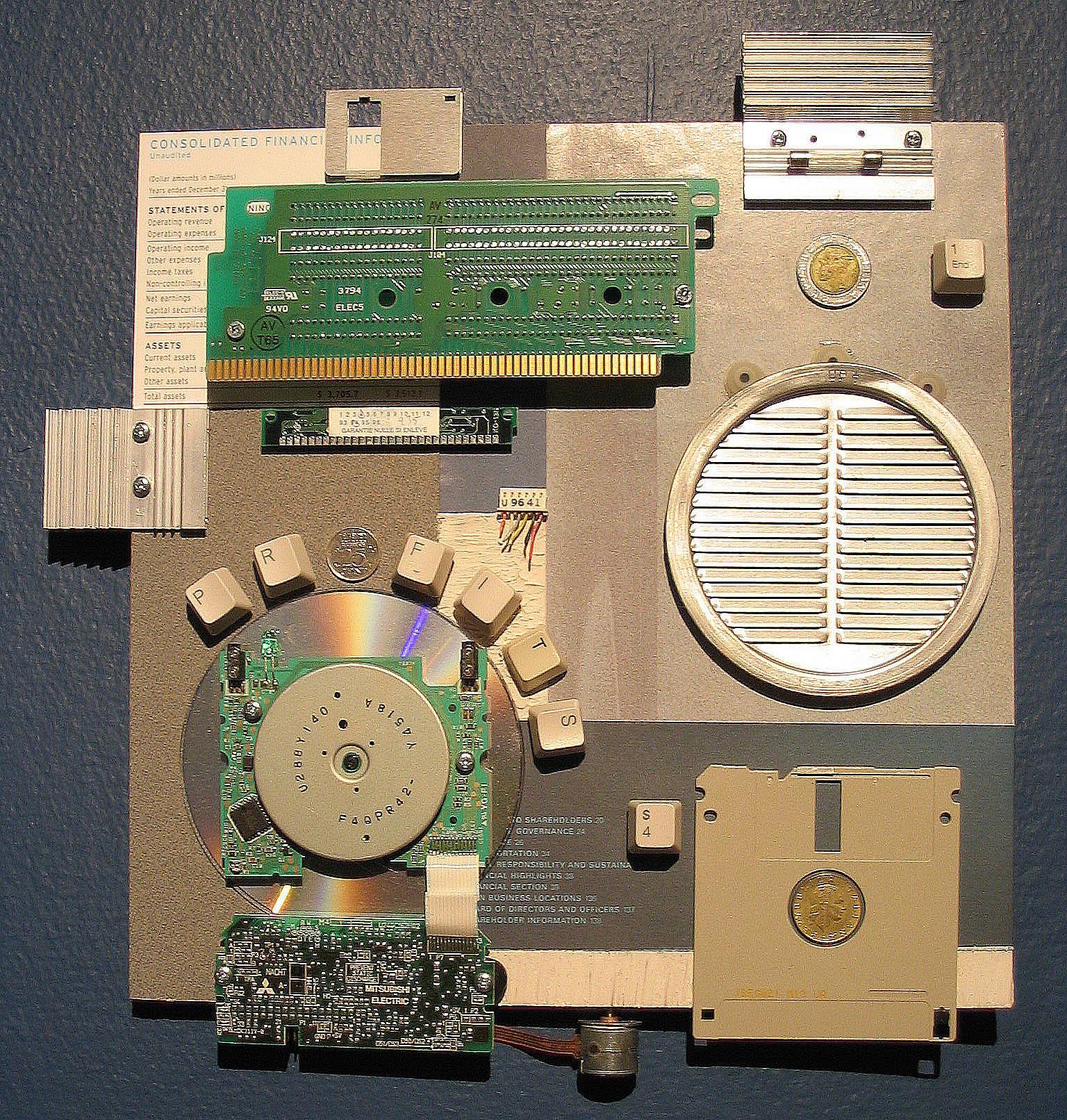
Mixed media

BP-09
Nature
Mixed media
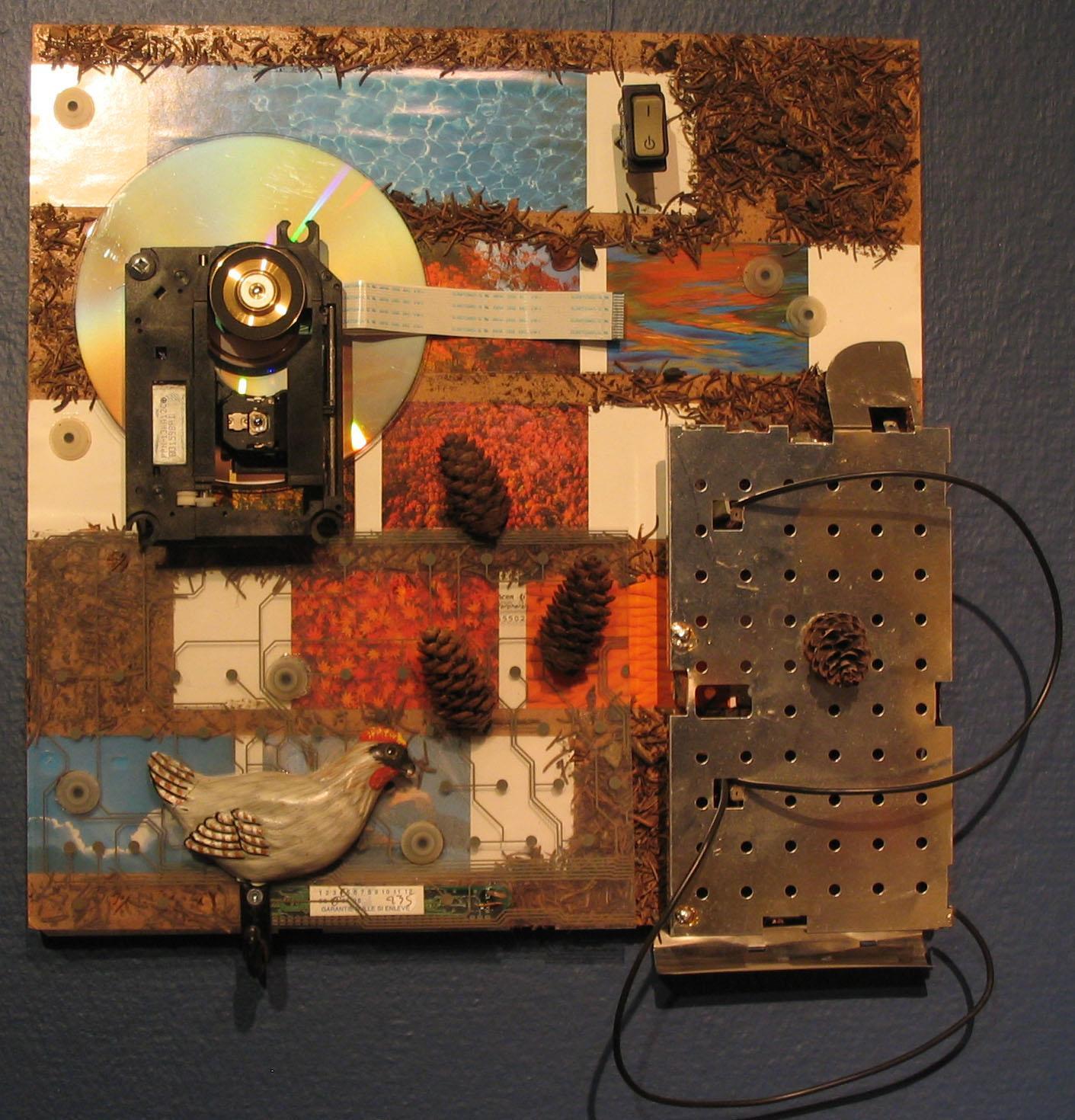
12" x 14" x 2¾"
FRAMED: 17½” x 17½” x 2¼”
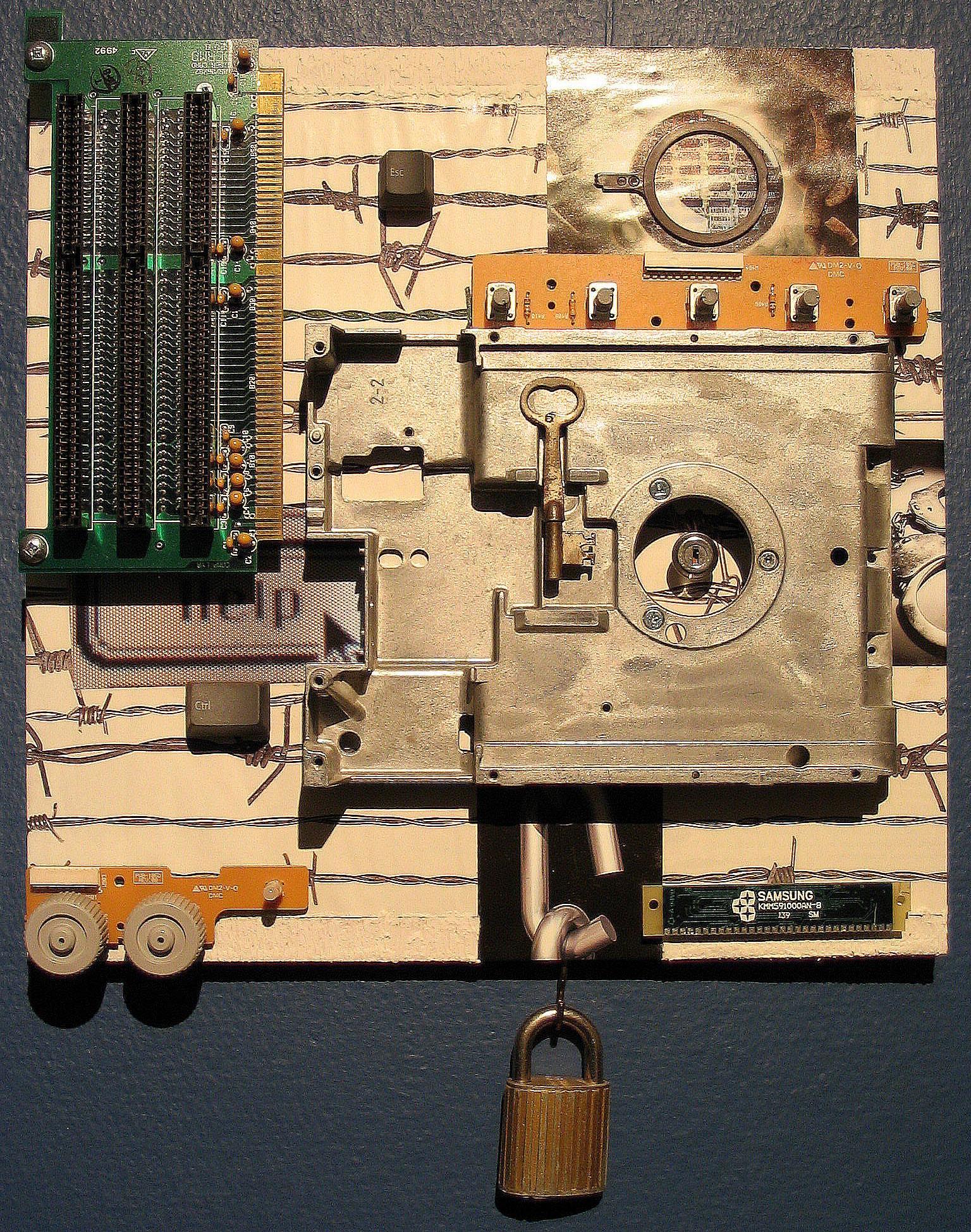

Mixed media

Mixed media


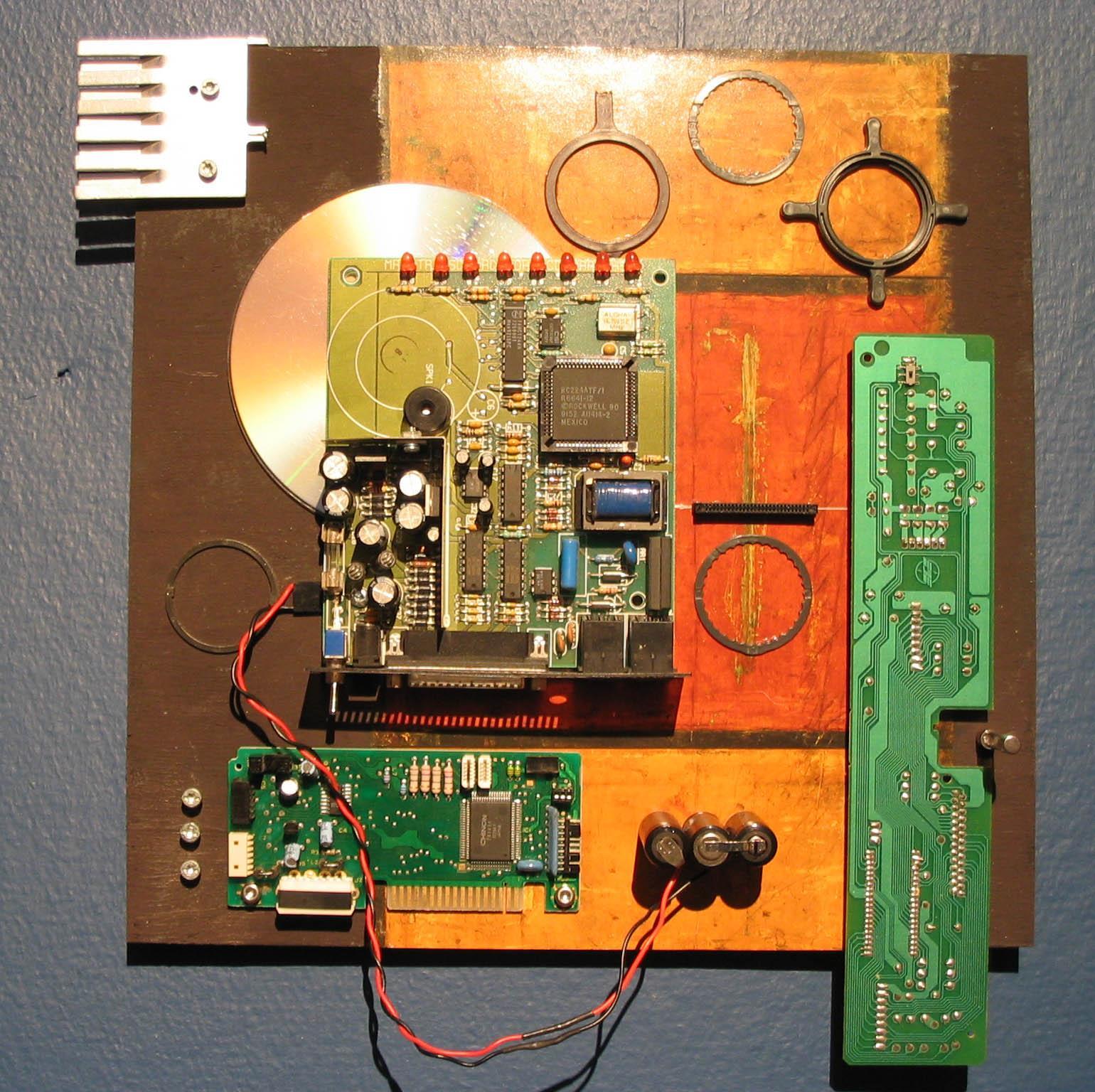
Don’t Touch That Dial
media
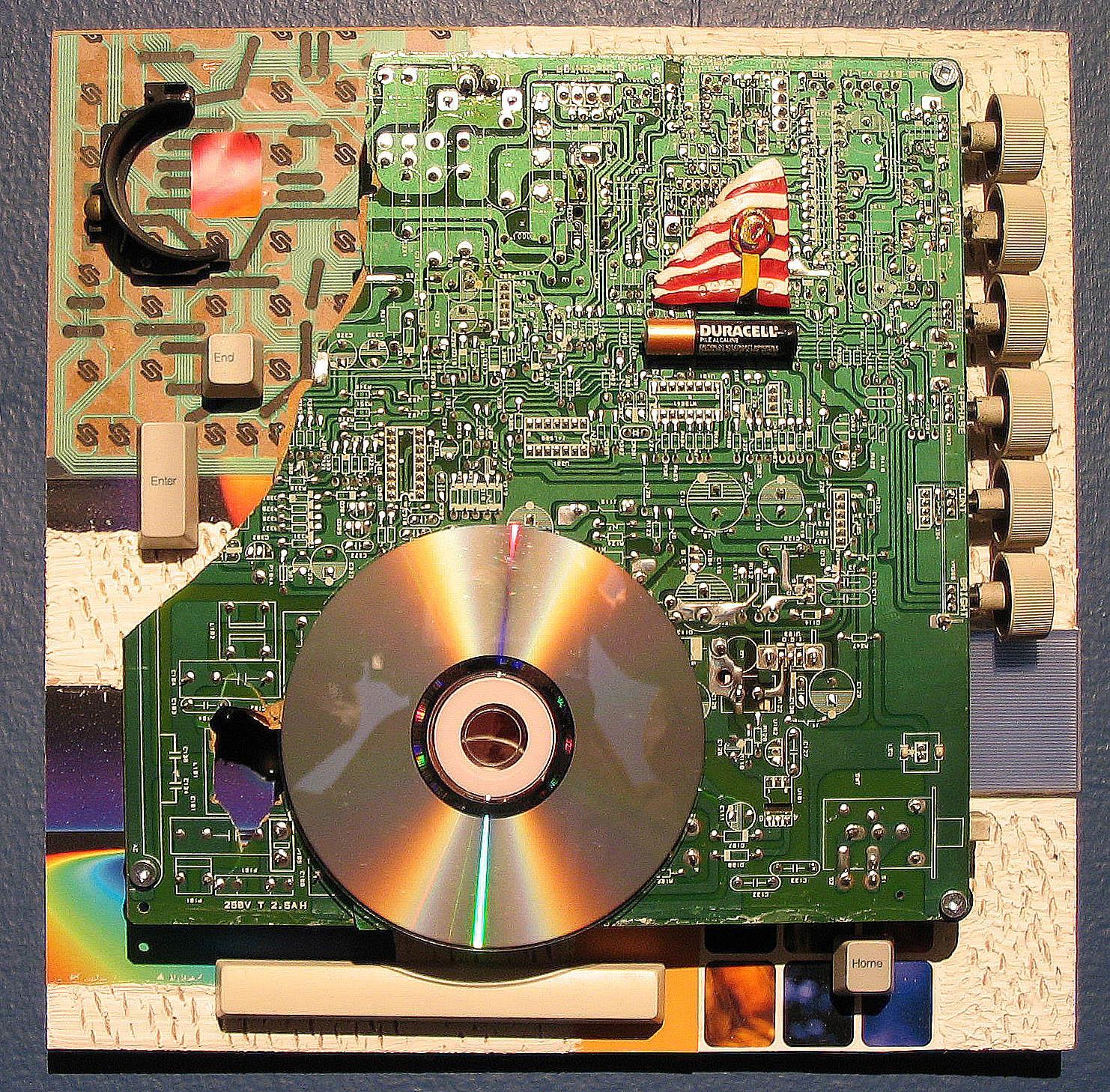

BP-18
Unnatural Connection
Mixed media

13½” x13½” x 2½”
FRAMED: 17½” x 17½” x 2¼”
Mixed media
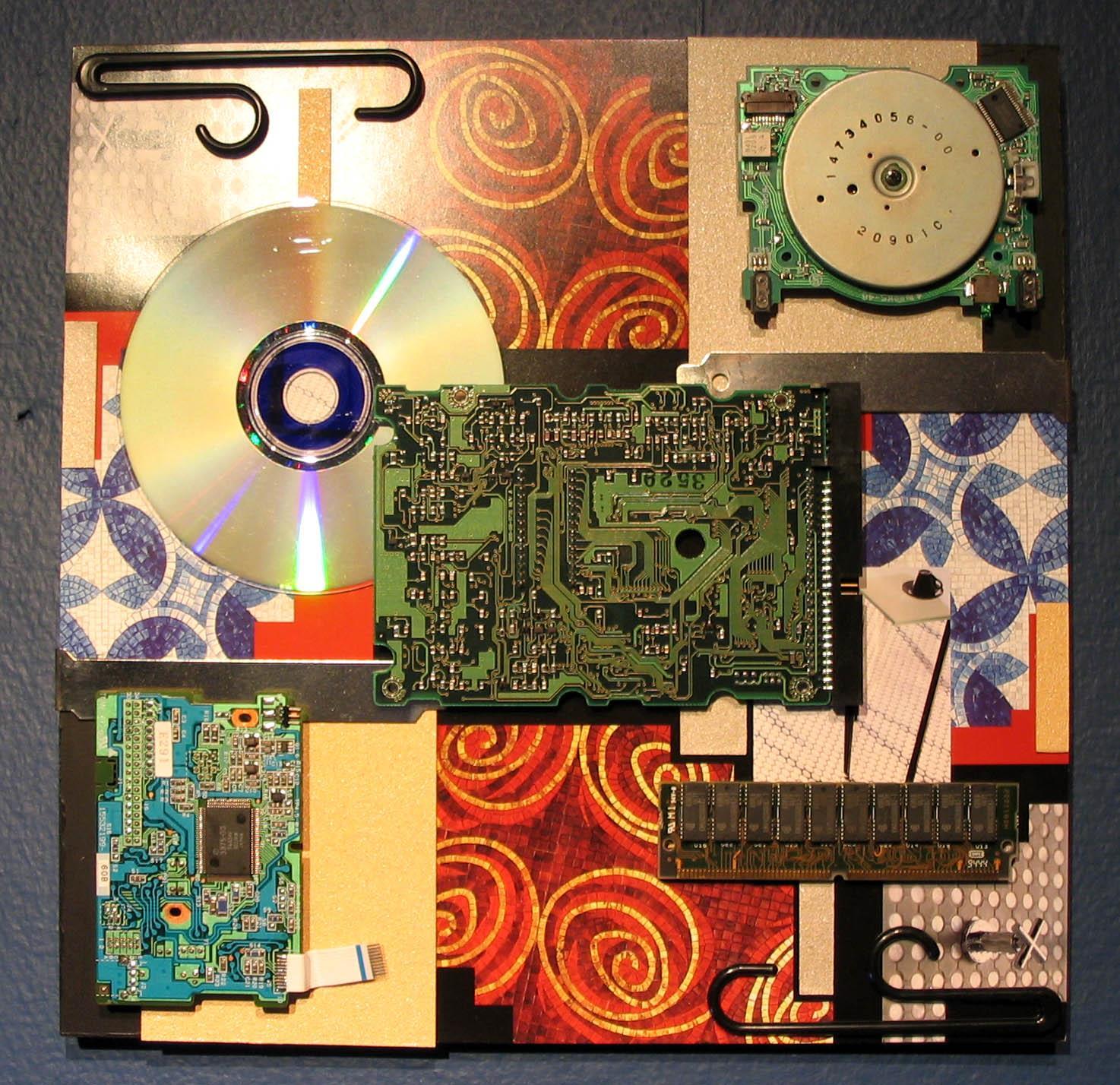
12” x12” x 1¼”
FRAMED: 15 x 15 x 2¼″
BP-20 Right Station, Wrong Channel
SOLD Mixed media
13¾” x 24½” x 6" (Base: 14½”L x 12¼"D x 13"H)

BP-21 Big Brother’s Watching SOLD Mixed media
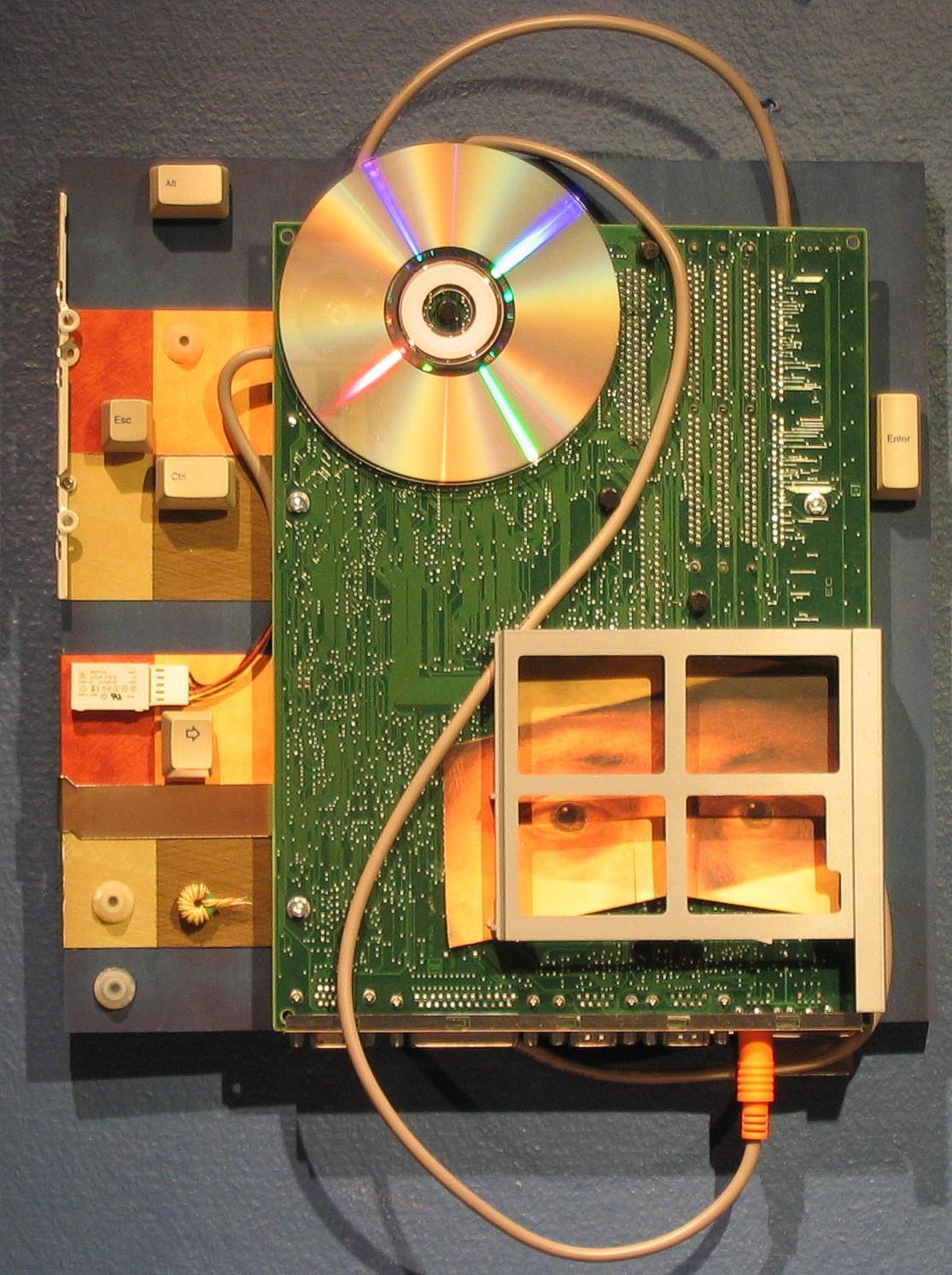
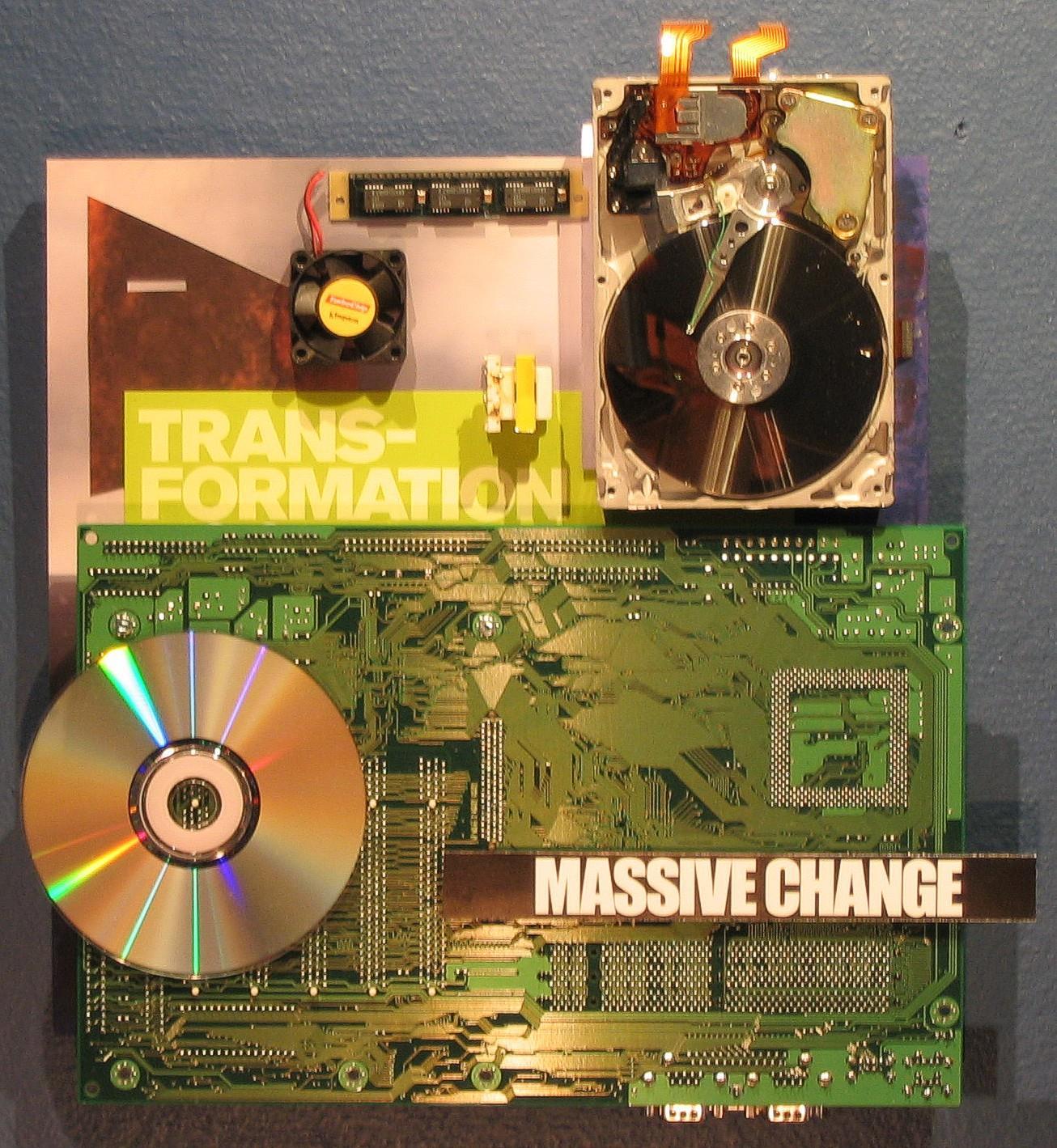


Mixed media


Wiring
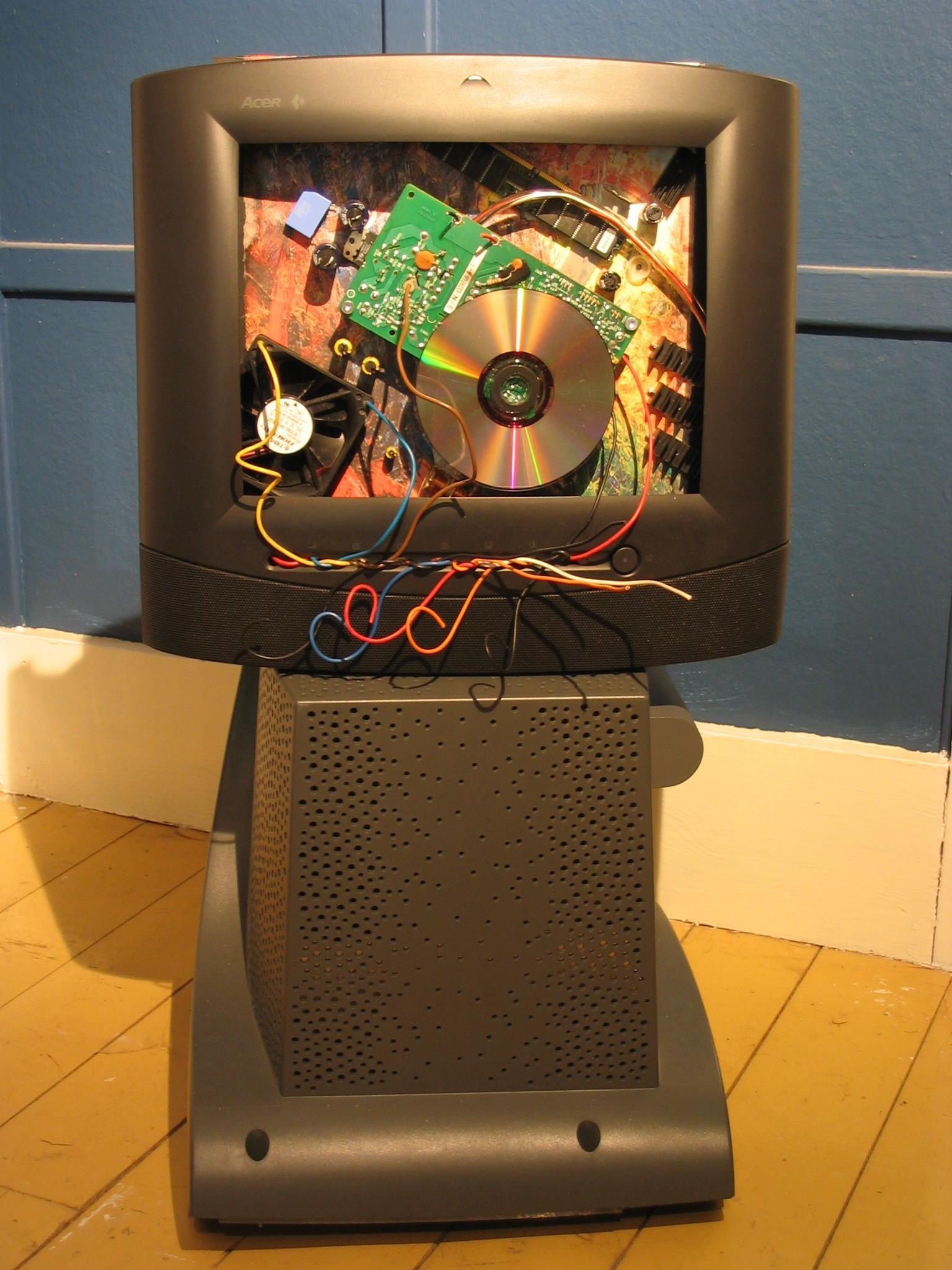
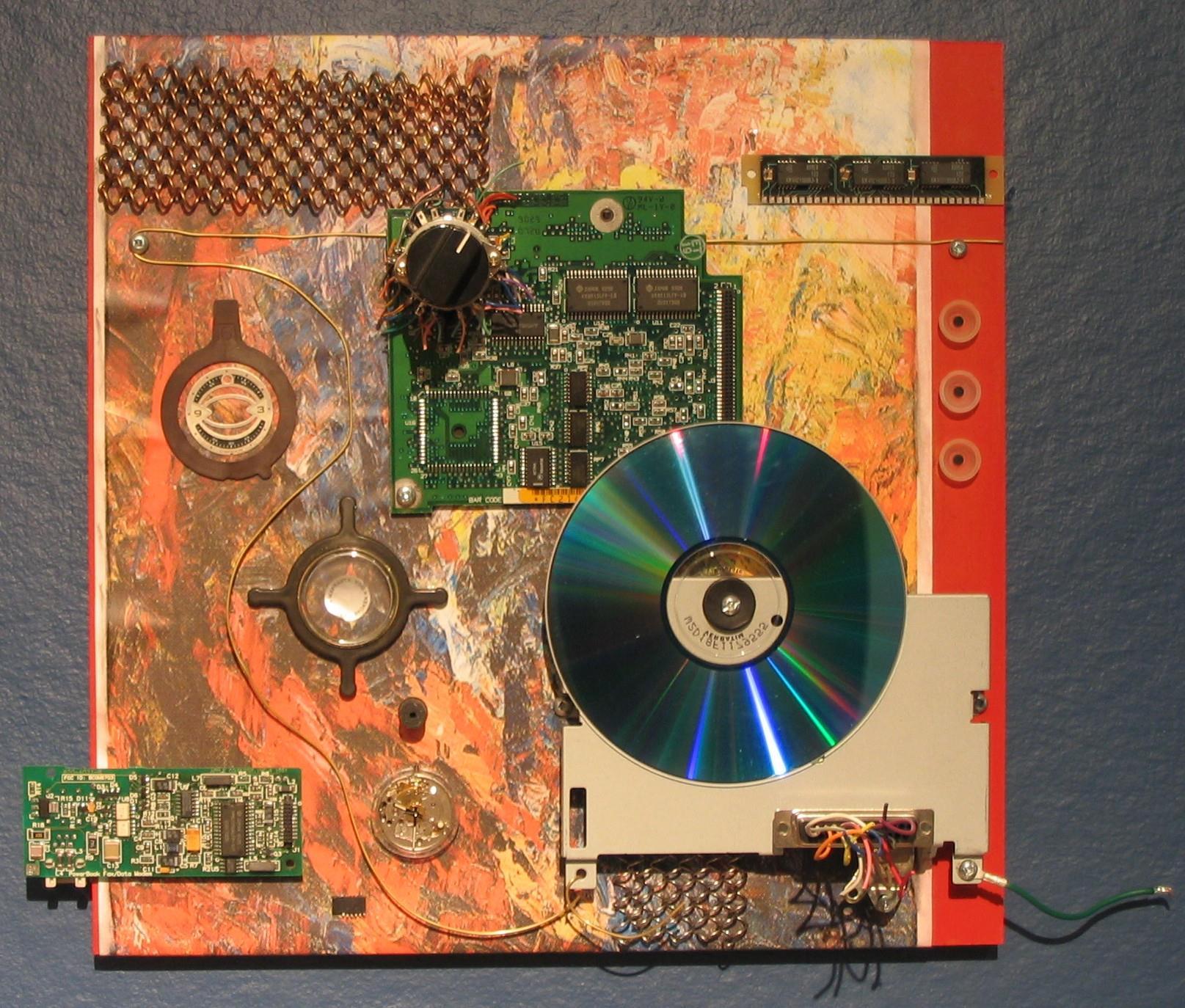
BP-29 Il n’y a pas de service au numéro que vous avez composé

Mixed media
12” x 12” x 2"
FRAMED: 13⅜″ x 13⅜″ x 2⅜″
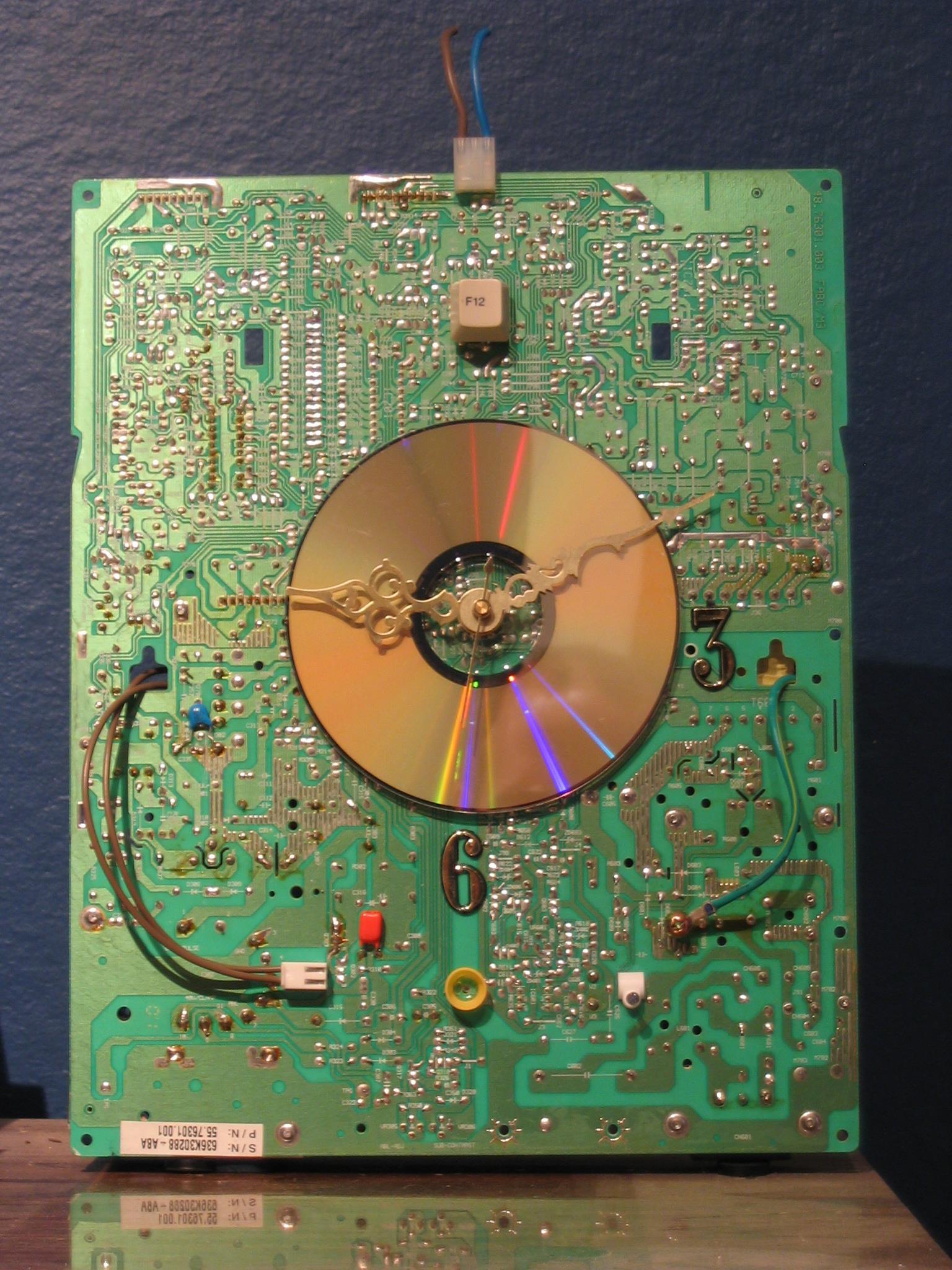
Mixed media
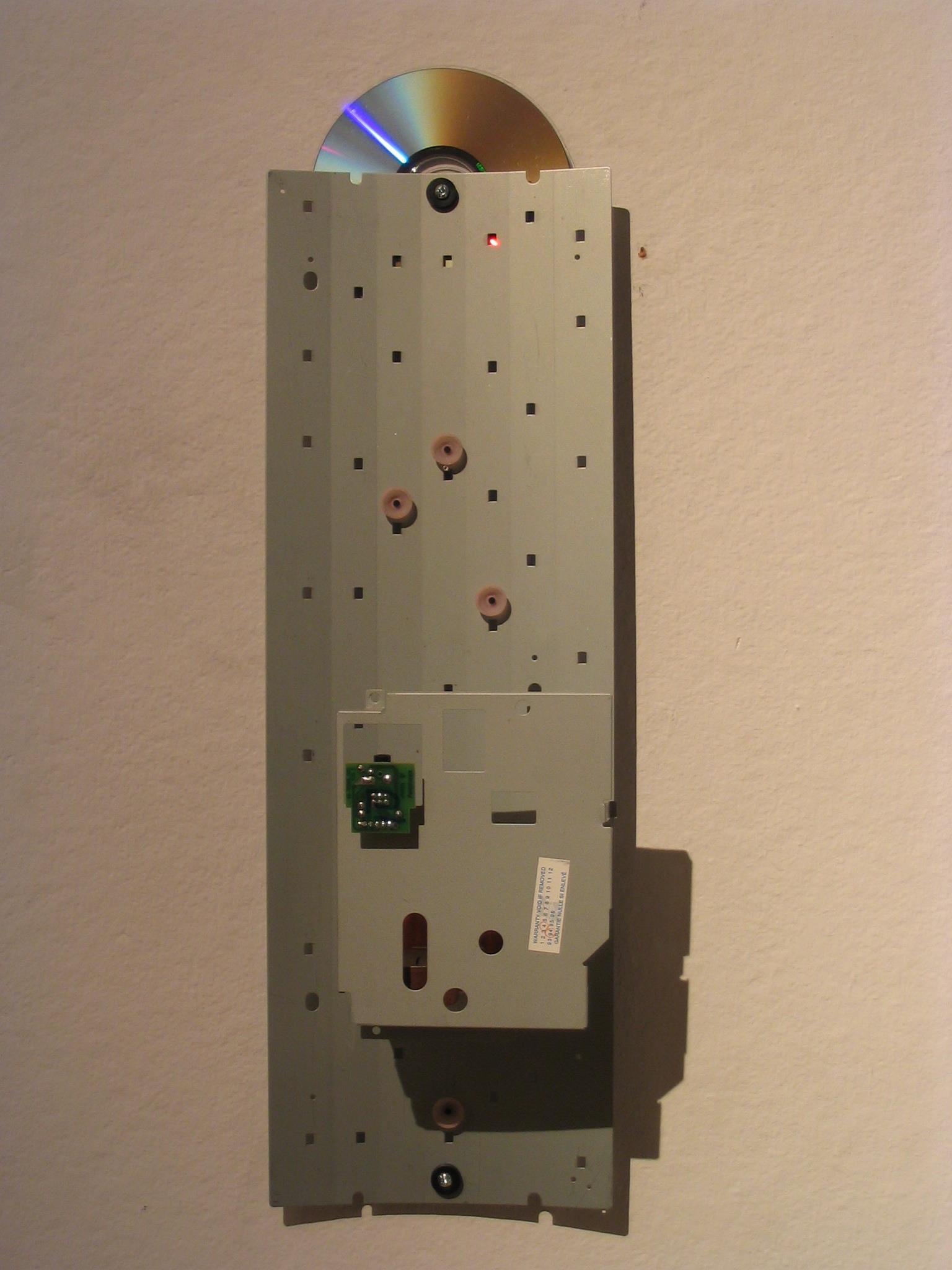

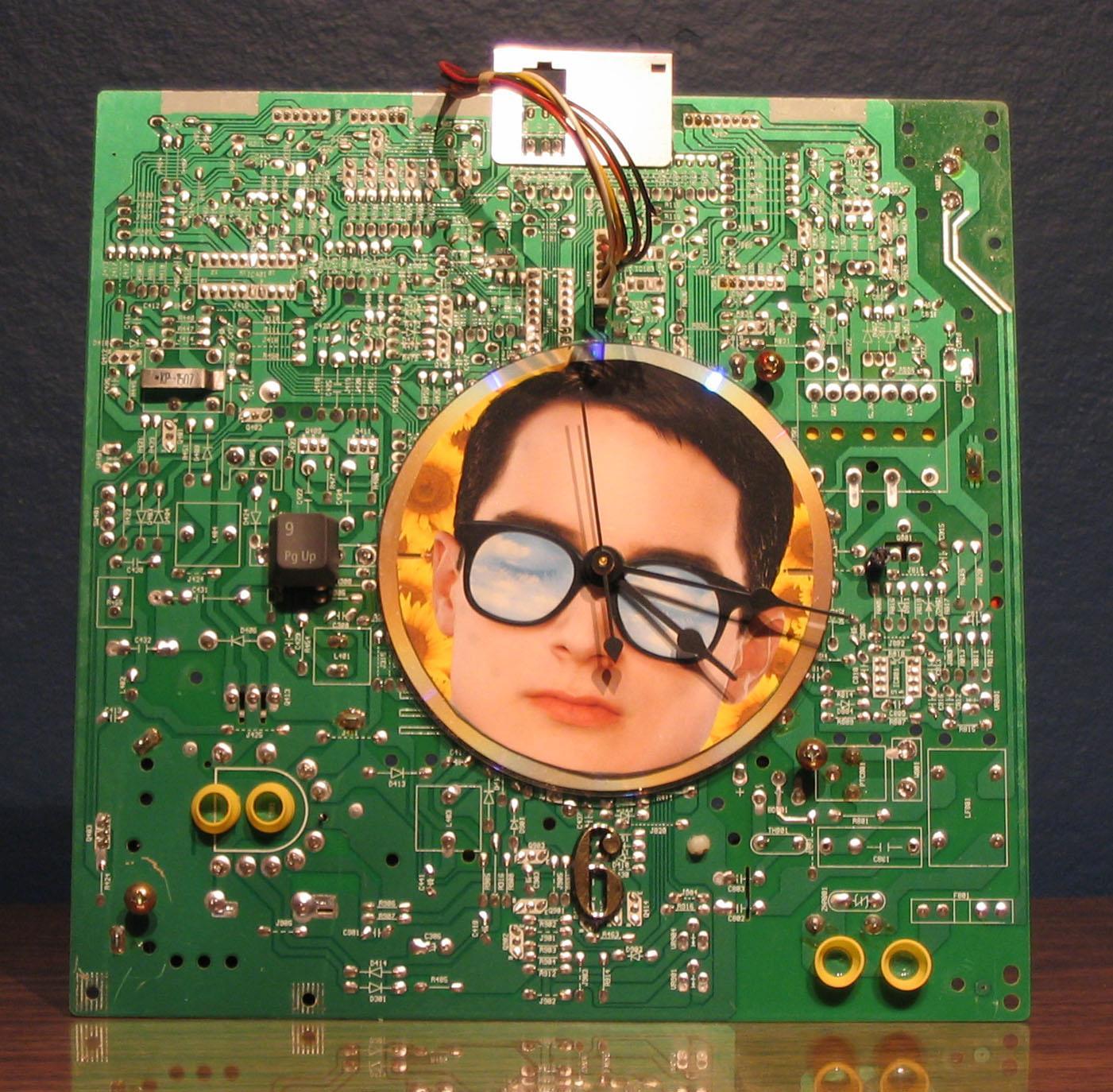
SOLD
Mixed media

12” x 12” x 1”
FRAMED: 13½” x 13½” x 2¼”
Mixed media

14” x 14” x 4”
FRAMED: 17½¨ x 17½¨ x 3”
SOLD


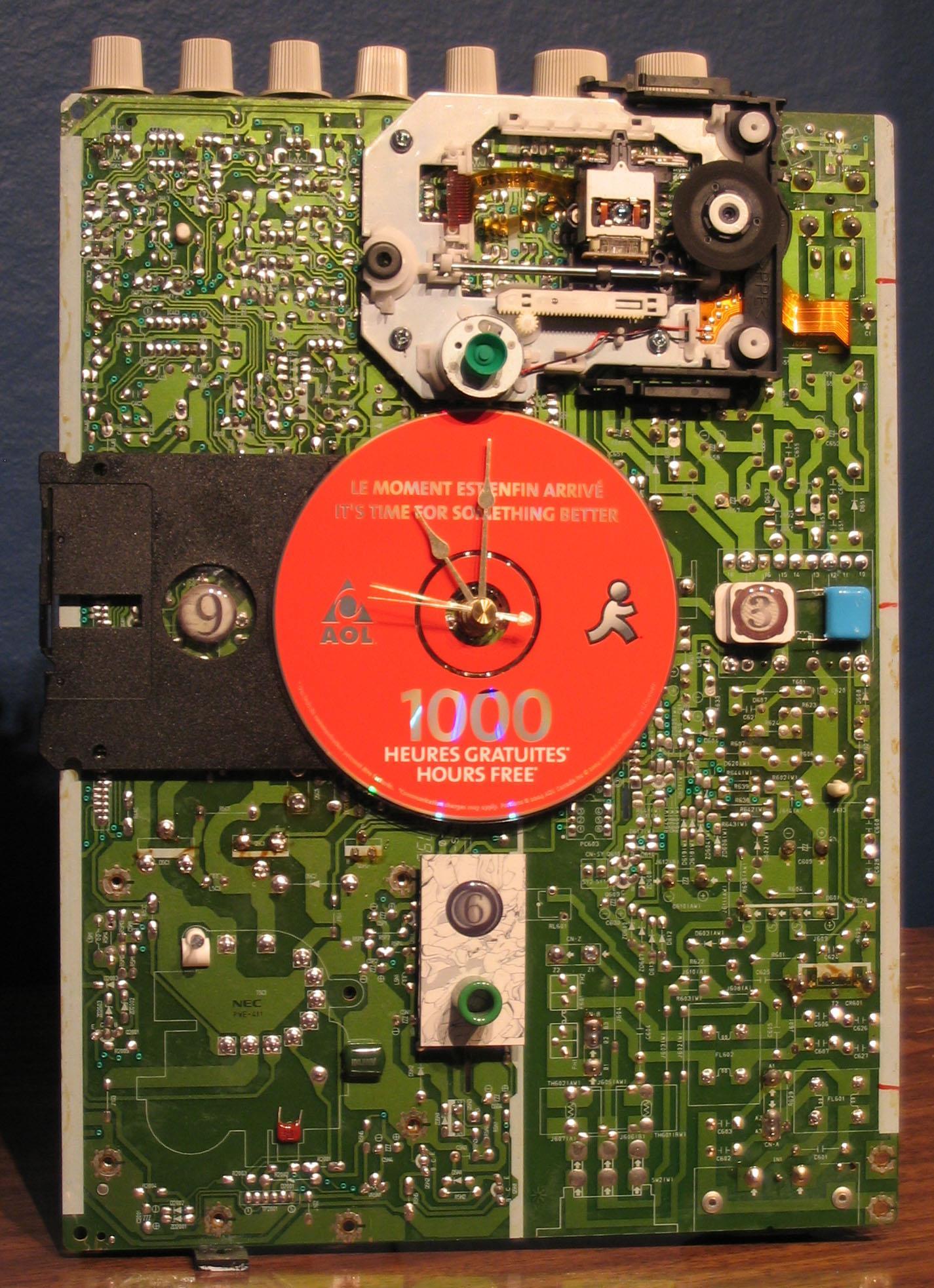

Mixed media
12⅝” x 14” x 2”
FRAMED: 16¾ x 16¾¨ x 2¼″
Mixed media

15” x 12¼” x 2⅛”
FRAMED: 16¾ x 16¾¨ x 2¼″
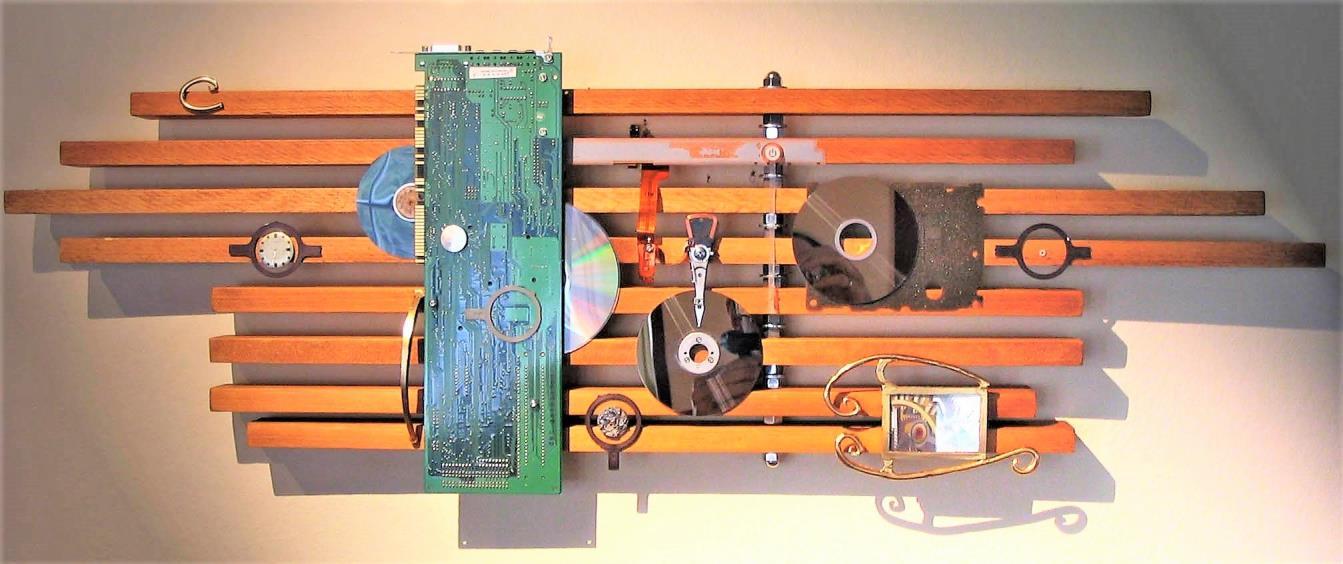




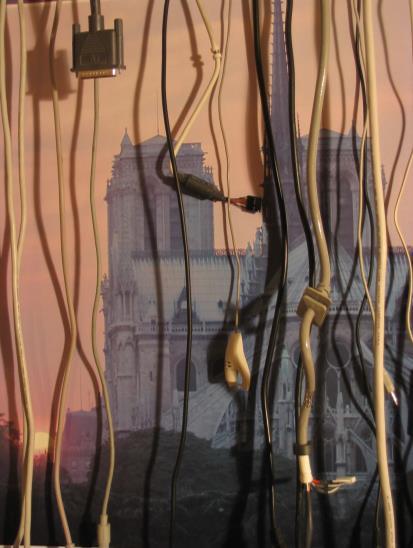







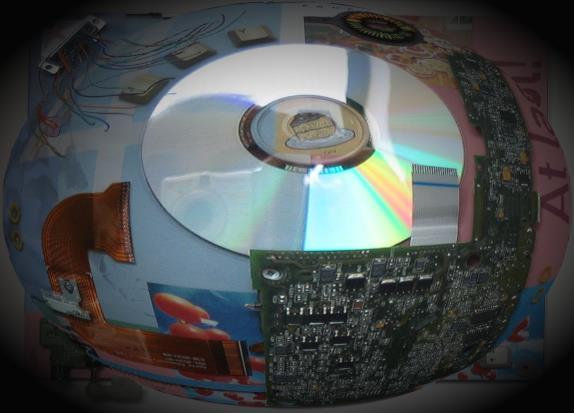

Technology is not going to save us.
Our computers, our tools, our machines are not enough. We have to rely on our intuition, our true being.
~ Joseph Campbell
Note:
The following images are computer-modified digital photographs of 3-dimensional panels. .



